The Emergence Series SHOUD 5
Featuring ADAMUS SAINT-GERMAIN , channeled by Geoffrey Hoppe
Presented to the Crimson Circle
January 5, 2019
Original Website http://www.crimsoncircle.com/
I Am that I Am, Adamus of Sovereign Domain.
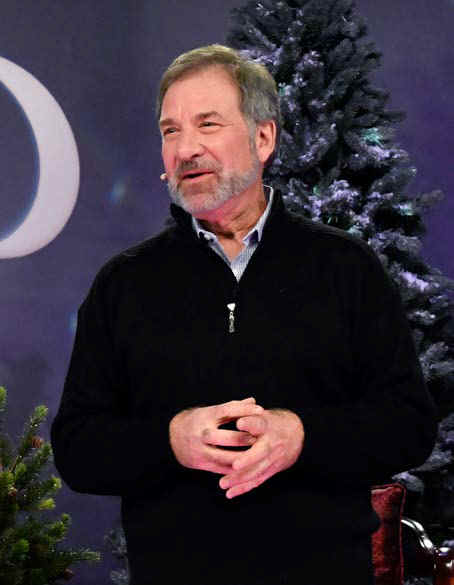 Ah! Let's take a deep breath and welcome in 2019. Welcome in 2019. How
many of you – let's turn these lights up, because it's going to be
about you for a little bit here – how many of you actually thought
you'd make it this far into 2019? (laughter) You thought you would. How
many didn't think you would make it or were just kind of wondering?
2019, when you thought, even 20 years ago, “That seems like a longgg
time away.” How many did not, weren't quite sure they were going to
make it into 2019? I say there should be more hands up. Maybe they're
all online.
Ah! Let's take a deep breath and welcome in 2019. Welcome in 2019. How
many of you – let's turn these lights up, because it's going to be
about you for a little bit here – how many of you actually thought
you'd make it this far into 2019? (laughter) You thought you would. How
many didn't think you would make it or were just kind of wondering?
2019, when you thought, even 20 years ago, “That seems like a longgg
time away.” How many did not, weren't quite sure they were going to
make it into 2019? I say there should be more hands up. Maybe they're
all online.
You know, it's kind of an interesting thing. There's almost that struggle that's going on within. Part of you thinking you just weren't going to stay here a long time in this lifetime. (Linda is waving her hands excitedly) Some of you thinking … yeah.
LINDA: But Adamus! You told us we were sticking around! You told us!
Shouldn't we believe you?
ADAMUS: No, I said “If you want to stay around.” (some chuckles) If you
want to stay around. That's why also at one point I said if it's only
five of you, because that's about all I expected would stay around, but
…
LINDA: Pbbbt!! (laughter)
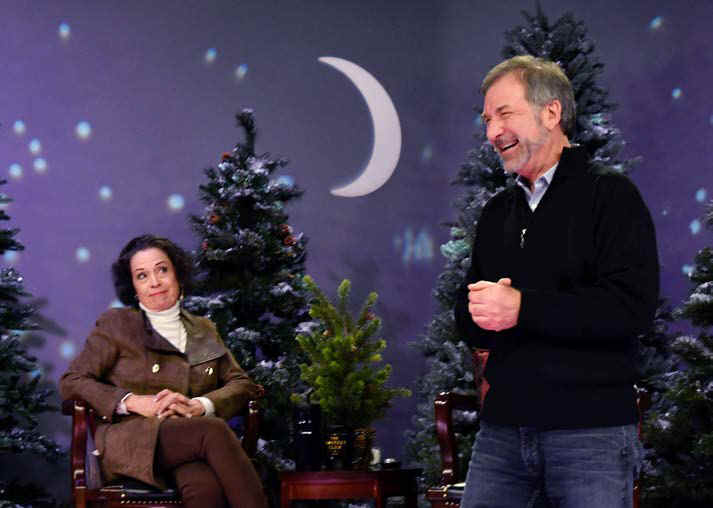 ADAMUS: But you made it. 2019. Big year. 2019 is going to be bigger
than 2020. 2020 sounds better, you know, 2020. But 2019 is going to be
a bigger – I would go so far as to say – better year for you than 2020.
2020 is going to be kind of a bore after this year (some chuckles).
ADAMUS: But you made it. 2019. Big year. 2019 is going to be bigger
than 2020. 2020 sounds better, you know, 2020. But 2019 is going to be
a bigger – I would go so far as to say – better year for you than 2020.
2020 is going to be kind of a bore after this year (some chuckles).
LINDA: Uh-oh.
ADAMUS: You'll need it, the nice relaxation.
LINDA: Uh-oh. A bore? (more chuckles)
ADAMUS: Before we do anything else though, anything else, let's take a
good deep breath – how about a quantum breath – into Allowing.
LINDA: Mm.
ADAMUS: Into Allowing. Perhaps the most sacred gift you could give to
yourself is just allow.
This journey is natural. It's going to happen. By taking a deep breath
and allowing, you allow yourself. You allow the divine, the Master, all of you to be here. Not scattered in
pieces somewhere else. Not the divinity
out in some godforsaken heaven somewhere. But when you take a deep
breath and allow, you let it all be here. There's no real mystery in
any of this, other than when the human gets involved and starts
tinkering around with a very natural process called Realization. Sooner or later, it'll happen to
everybody who comes by way of Earth.
What you've probably learned, noticed up until now is that when you get
all involved in it, you try to figure it out, you try to work your
Realization, it's a real struggle. Things fall apart. When you simply
allow – I mean allowing your Self, allowing your journey, allowing your
experiences, allowing the Master – when you allow, then there seems to
be that synchronicity.
Everything just kind of falls into place and just kind of happens. And
then, of course, the human freaks out, “Oh! I've got to control. I've
got to manage. I've got to dictate what's done.” Let's start this year
out with a great big huge Allowing.
LINDA: Mm.
ADAMUS: Let yourself enjoy this year.
This New Year
This year, I'm going to call it the year of new friends. The year of
new friends (a couple of giggles). Yeah. Oh, and some of you laugh
because you don't have any friends and you can't imagine (laughter).
And it's natural too that you'd lose a lot of friends along the way,
because they don't quite understand. It was kind of difficult to talk
to them about what you're going through – (someone says “Weirdo”)
weirdo, sometimes even other Shaumbra
– so you get to that thing of not a lot of friends in your circle. But
this year, 2019, is going to be the year of new friends.
I can see some of you thinking, “I don't really want new friends.”
(some Shaumbra shout “No!”) “Eh, no! Been there, done that. Too much
work.” These friends are different. These friends are going to be very
different and we'll get into that in today's Shoud. But for now, how about that good deep breath
of Allowing.
(pause)
I was at the Ascended Masters Club on New Year's Eve. I'd decided to
hang out there. It had been a long year. I was kind of tired, just
needed to relax a little bit, and one of the other Ascended
Masters came up to me, Mezrah, a very attractive woman. Ooh, can I
say that these days? Woman?
LINDA: Nah! You can't.
 ADAMUS: A person. A person, a former person came up to me, Mezrah. You
know, you get to the Ascended Masters Club and you can put on anything
you want. You can be a man, a woman, both at one time. Why not? You can
do anything you want, but there's still kind of a tendency, that you'll
notice when you get there, that the Ascended Masters tend to kind of
still outfit themselves from their most previous lifetime on Earth.
They still tend to walk around in that identity, projecting it out to
others, I think because they consider it to be the most special
lifetime. Even ones who were famous may not take on that famous person
persona. They'll take on their last lifetime persona.
ADAMUS: A person. A person, a former person came up to me, Mezrah. You
know, you get to the Ascended Masters Club and you can put on anything
you want. You can be a man, a woman, both at one time. Why not? You can
do anything you want, but there's still kind of a tendency, that you'll
notice when you get there, that the Ascended Masters tend to kind of
still outfit themselves from their most previous lifetime on Earth.
They still tend to walk around in that identity, projecting it out to
others, I think because they consider it to be the most special
lifetime. Even ones who were famous may not take on that famous person
persona. They'll take on their last lifetime persona.
So, there is that … what I love about Realization, the Ascended Masters
Club and being an Ascended Master is you can play any game, any story
you want. You can act it out. You can act very human at the Ascended
Masters Club. You know, we drink a lot of scotch and bourbon and fine
wine and eat a lot of food. You can still do these things, but you
realize it's all kind of a beautiful story, a beautiful illusion. You
don't get trapped in it. You don't get addicted to it.
Before I go any further with the story of Mezrah, you know I've said it
before and I'll say it again: There's absolutely nothing in this Earth,
whether it's chemicals or minerals or anything else, that's actually
addictive. Nothing physically addictive. Mentally addictive, ah, yeah.
And you can believe that you're addicted to a physical substance, but
it's really just a mental addiction. So, with that understanding, it's
relatively actually easy to get over – what are you staring at (to
Linda) – get over addictions (laughter). I think dear Linda of Eesa
is going to talk to Cauldre
afterwards about his mental addiction to cigarettes.
So, you really can't get addicted to anything, and I say that because
I'd like you to start being free of your fears that you're going to go
back to drinking too much or smoking too much pot – well, you're doing
that anyway – or whatever it happens to be. Addictions for Shaumbra are
going to be a thing of the past, really, because with your new
relationship with energy and understanding of what an addiction
actually is, it's going to be a thing in the past. You are now free to
enjoy life without worrying about getting addicted. Isn't that nice?
Yeah, yeah. Yeah, yeah (some applause). And then you're going to really
start to realize, for those who are addicted, oh, the hell they're
putting themselves through and the blame and the hopelessness at times,
and it's really just a mental thing. It's like a form of hypnosis.
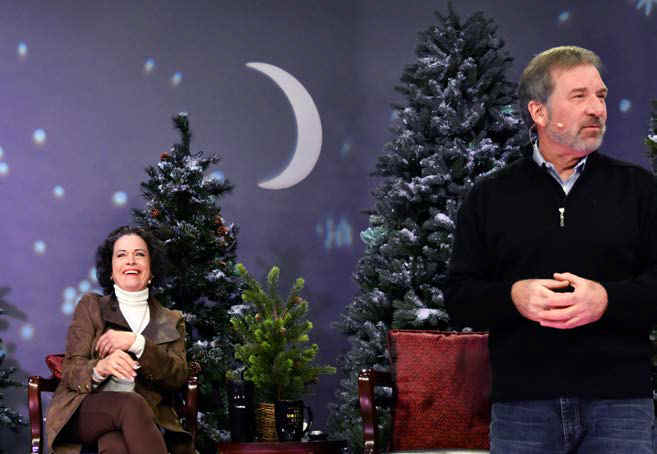 But to continue with my story, I was talking to Mezrah, and she said –
you know, they taunt me sometimes, because I guess I'm a little pompous
once in a while (some chuckles).
But to continue with my story, I was talking to Mezrah, and she said –
you know, they taunt me sometimes, because I guess I'm a little pompous
once in a while (some chuckles).
LINDA: Nooo!
ADAMUS: No. No, no, no, no. And I'm a little – oh, I hear all sorts of
words now coming (laughter) – arrogant might be a good word, once in a
while, but more than anything it's actually I'm just really proud,
really proud of everything you're doing. And I know it's hard, it's
hard, and you really know how to make it hard, but (more chuckles), no,
I'm really, really proud of how far we've come. And she said, “So,
Adamus, so what's with Shaumbra these days? What are you going to be
doing in 2019? What's the big thing?” And I thought about it for a
moment and I said, “You know, Mezrah, it's really time for new friends
– new friends – and that's what we're going to do this year, and that's
how we're going to kick things off today.
LINDA: Human? Human friends?
ADAMUS: I'm not going to define it quite yet. I'll leave the mystery, the
suspense.
LINDA: Hmm.
ADAMUS: So, and that's always – I love giving little theatrical lessons
too. You get to be a Master, an embodied Master, on this planet. You
know, you got your stuff together and nothing really fazes you, bothers
you, overwhelms you unless you want it to, just for the fun of it. But,
as the Master you also learn, take on that sense of theatrics.
Theatrics.
Now, I know that I had a past incarnation as one of the greatest
playwrights in the world (some chuckles), the world's ever seen. But I
learned a lot from – it was kind of a despicable character, that Shakespeare
– but I learned a lot in that lifetime. Act it out. Play it out
(speaking dramatically). Go from gray to colorful. Have a sense of
timing. Timing. Do you know what timing is? (more chuckles) It's not
just everything is delivered in the same all the time (speaking in a
monotone voice) and there's … have a sense of timing (speaking
dramatically).
Be expressive, and when you're working with your students, which many
of you will be doing, I mean, not necessarily with a shingle, you know,
that you have some spiritual enlightenment practice, but you're going
to be working with others. Where's the book?
LINDA: It fell on the floor.
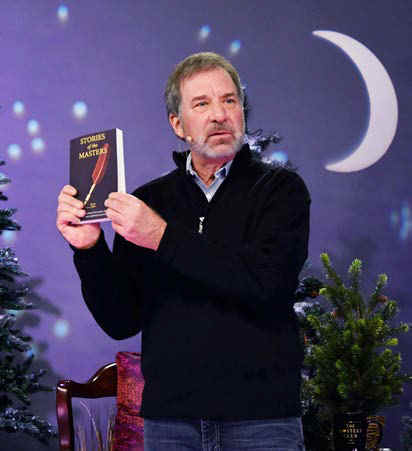 ADAMUS: Fell on the floor. The book is a great start. That was the
whole concept behind the book. It wasn't just to have all the Keahakers
write stories.
ADAMUS: Fell on the floor. The book is a great start. That was the
whole concept behind the book. It wasn't just to have all the Keahakers
write stories.
LINDA: Here you go.
ADAMUS: It was saying you're going to be teaching, one way or the
other, stories, your stories of the Master. And as a Master, you're
going to start having fun with stories. They're no longer going to
overwhelm you, put you under and haunt you and all the rest of that.
You're going to –thank you – you're going to start having fun with your
stories. But be a little theatrical with your students when they come
to you. Do a lot of this kind of thing (laughter, as Adamus nods his
head and makes a “serious” face). Learn to use your eyes, “Mm hmm”
(demonstrating). Don't sit there like, “Oh!” (more chuckles at Adamus'
eyes bugged out). And, you know, learn some gestures, gestures that
(laughter as he demonstrates) when you're talking to the 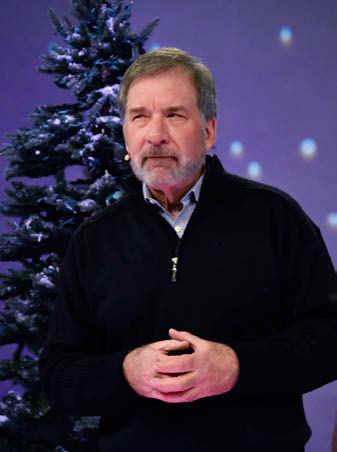 student really
get them concerned, because they'll say something like, to you, they'll
say, “Oh, Sart, I don't even know if I want to live anymore,” and the
typical reaction is, “Oh, no, no! Really, you do!” And you're like,
Sart is like … (some giggles, as Adamus nods his head). That'll get
their attention. That'll really get their attention. So be a little
theatrical.
student really
get them concerned, because they'll say something like, to you, they'll
say, “Oh, Sart, I don't even know if I want to live anymore,” and the
typical reaction is, “Oh, no, no! Really, you do!” And you're like,
Sart is like … (some giggles, as Adamus nods his head). That'll get
their attention. That'll really get their attention. So be a little
theatrical.
So, in addition to everything else, officially this is the year of new
friends, but kind of a sub-line on this whole thing is “Come on! Be
expressive. Be a little theatrical,” whether you're writing a story –
there are some great theatrics in this story. You know what Shaumbra
did? They took their personal, boring, dull experiences and made them
kind of fun, turned it into a story, got lighthearted with it. They
took what came from their personal life, and it might have even been a
tragedy, and made it into a beautiful and fun story, one filled with
wisdom, humor, some theatrics.
So that was the reason for this book. And the reason why I wanted it
out by December 31st, end of the year, let's kick off this year with
some theatrical stories. Have fun with it. You're not making it up. I
mean, you're not. If you embellish something from your life, you're not
making it up. You're just embellishing it. You're just adding a little
color to an otherwise… it's like if your dinner plate had kind of brown
meat and brown potatoes and brown gravy, you're just putting some green
and yellow on there and some red with cranberry sauce. You're just
making it a little bit more fun.
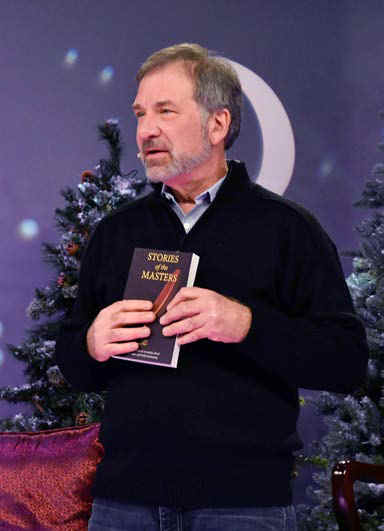 Humans get so dreary with their stories. I'd like to see some T-shirts
– I always ask for T-shirts and they never come – but “I'm not dreary.”
You know, just plain and simple, as a reminder to yourself, “I'm not
dreary anymore.” Okay. This year, some theatrics in your stories, okay?
Don't be afraid to act it out.
Humans get so dreary with their stories. I'd like to see some T-shirts
– I always ask for T-shirts and they never come – but “I'm not dreary.”
You know, just plain and simple, as a reminder to yourself, “I'm not
dreary anymore.” Okay. This year, some theatrics in your stories, okay?
Don't be afraid to act it out.
So, the year of friends. The year of a lot of movements.
Now, I'm going to talk more about it in ProGnost: The Dragon Enters,
next week. This is going to be a crazy year. I mean, this is going to
be one hell of a year. You can already see it. You don't need to be a
prophet, like I am, to see it. Ups and downs, a lot of divisiveness.
This is not going to be a Kumbaya year by any stretch of the
imagination. But for you, I'm going to say it's going to be your best
year yet, for maybe 98 percent of you (some cheers and applause). Why
do you think that is? Because you're tired of the other way of doing
it. You're tired of the other way and you know it can be easy. You know
it doesn't have to be difficult. You know all those experiences,
they're just big fat stories.
So, let's take a deep breath, a quantum breath for that incoming
Master, spirit, divine into your life where you're not alone anymore,
where you've got all these other things coming in.
Shaumbra Wisdom
Okay, Linda on the microphone, question for the audience. Question
today doesn't have a lot of relevance to what we're going to talk
about, but I want to know. I really want to know something, and this is
kind of an interesting question. Here we are at the beginning of the
year and the question is, is humanity, is the planet where you expected
it to be now? Did you have different expectations of where the planet,
where humanity would be now? 2019. We're past the Mayan Calendar. We're
past the Harmonic Convergence and Concordance and everything else.
We're past all that. Is this where you expected the planet would be?
Linda, please. This is a thoughtful question.
↓ ↓ ↓
KELLY: No.
ADAMUS: No. And why not?
KELLY: But when I think about it, it makes sense, because we all kind of
deconstruct before we kind of rebuild …
ADAMUS: Right.
KELLY: … and reconnect. So in that sense it makes sense.
ADAMUS: Right.
KELLY: But I didn't expect it to get this turbulent or this …
ADAMUS: Now, I'm talking about the planet, not your life, of course
(laughter).
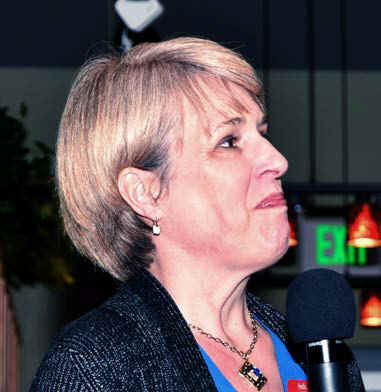 KELLY: Well, I meant, but … yeah! Yeah, I just, I'm kind of amazed by
what's going on in the world and that there's so much hatred and …
KELLY: Well, I meant, but … yeah! Yeah, I just, I'm kind of amazed by
what's going on in the world and that there's so much hatred and …
ADAMUS: Yeah, kind of weird, isn't it?
KELLY: … it seems like a lot of it. Like, intense, yeah.
ADAMUS: Yeah. So maybe you expected, maybe before you came into this
lifetime or maybe 20 years ago or when you were a child that things
would evolve and be cohesive and …
KELLY: I think I kind of thought everybody would go along with me, in a
way.
ADAMUS: Right, right.
KELLY: Or something.
ADAMUS: And how many are going along with you?
KELLY: I don't know. Shaumbra?
ADAMUS: Not so many! Yeah, yeah!
KELLY: Not too many Shaumbra.
ADAMUS: Well, it's a good point. It's a good point. Not so many.
KELLY: Yeah.
ADAMUS: Not so many. Good. Thank you.
KELLY: All right. Thank you.
ADAMUS: Well, do you ever find it depressing or sad? You know, do you lay
awake at night and think…
KELLY: I have my moments.
ADAMUS: Yeah. Planet crap. Yeah.
KELLY: Yeah, and I have to really shake it off and breathe it out or go
for a walk. Yeah.
ADAMUS: It's a tough one.
KELLY: Yeah.
ADAMUS: Yeah.
KELLY: It's heavy.
ADAMUS: Yeah, good.
Is the planet, is humanity where you expected it to be right now?
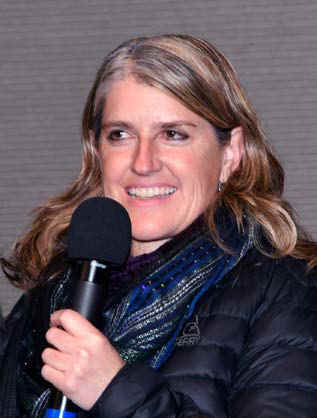 JULIE: I'd say it's mixed. It's been up and down, and I feel like I
haven't been attached for a while. It's hard to keep track enough of
like “What day is it?”
JULIE: I'd say it's mixed. It's been up and down, and I feel like I
haven't been attached for a while. It's hard to keep track enough of
like “What day is it?”
ADAMUS: Right, right! (they laugh)
JULIE: And “Where am I?!” And “What's going on now?!” And …
ADAMUS: So, when you were young, you were, let's say, in grade school
and you were kind of dreamy, where'd you expect the planet would be?
You were in grade school, what, 20 years ago? (she giggles) So where'd
you expect the planet would be?
JULIE: I mean, I remember a point where I thought that the planet might
blow itself, that people would blow up the planet.
ADAMUS: Yeah, yeah.
JULIE: So, I – so far I was pretty pleased!
ADAMUS: So maybe this is a good thing! (they laugh)
JULIE: I was like, “Cool!” Okay!
ADAMUS: “We just haven't done it yet!”
JULIE: We haven't done it yet.
ADAMUS: Yeah, okay.
JULIE: So, to me, you know, it's been up and down and at different
times of definitely seeing things from different viewpoints and
worrying about the environment and then going through periods where
'All is well and it'll be what it'll be!' (she chuckles)
ADAMUS: You throw bags out the window driving down the road!
JULIE: No!
ADAMUS: Yeah. And do you find it sad or irrelevant?
JULIE: I don't. I have so many amazing souls that I play with and
connections to nature spirits.
ADAMUS: Right.
JULIE: And I see people all the time, young people that are in
different places and coming in with different viewpoints and people
getting into politics, so it's a mix.
ADAMUS: Yeah. It's a mix.
JULIE: There's definitely craziness and there is more people than ever
telling their stories and experiencing things and playing. So, it's
definitely a mix.
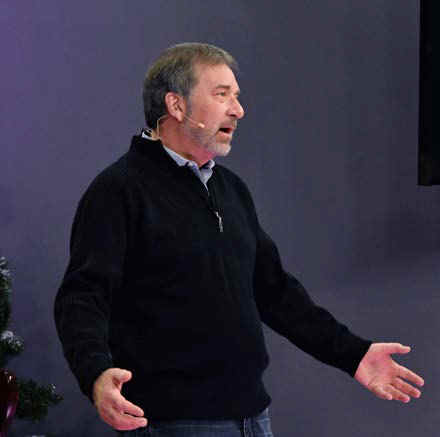 ADAMUS: How about in your own life? If you look back to when you were,
I'd say, maybe fourth grade, fifth grade, is this where you thought you
would be?
ADAMUS: How about in your own life? If you look back to when you were,
I'd say, maybe fourth grade, fifth grade, is this where you thought you
would be?
(there's a pause)
Look at your life now …
JULIE: It was so different. I, I … no, I was so … (she sighs) I was so
just in the machine, I call it, so in the matrix.
ADAMUS: Oh, interesting.
JULIE: So I just was …
ADAMUS: Interesting.
JULIE: I was very safe and very protected and very loved and very nurtured
and so not connected to any …
ADAMUS: So why did you get out of the matrix, if it was so comfortable?
JULIE: And I was so miserable. I was so stuffed in a little box.
ADAMUS: Ah! Interesting. Interesting. Good. Excellent.
LINDA: Next door.
ADAMUS: Ooh! I can feel more Master stories coming up. We might have to
do another book pretty quick. Yes. Is the planet, humanity, where you
thought it would be, where you expected it?
ERIN: I'm going to be honest, I don't really think about that. I'm more
selfish. I just think about myself, not humanity …
ADAMUS: Actually, I like that. I encourage that.
ERIN: … and the planet (she chuckles).
ADAMUS: No, take care of yourself. That's actually really, really good.
How's that going for you?
ERIN: Good.
ADAMUS: Yeah, good. Okay.
ERIN: I always have good things coming my way.
ADAMUS: Do you ever get tired of other people, of, you know, mass
consciousness?
ERIN: No.
ADAMUS: No?!
ERIN: No.
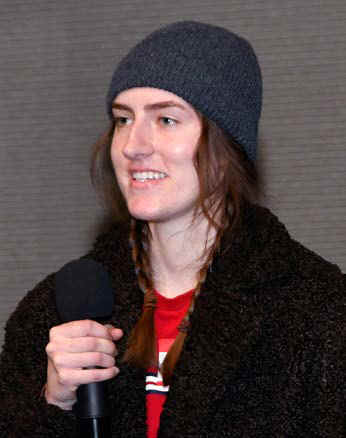 ADAMUS: Oh, you will (laughter).
ADAMUS: Oh, you will (laughter).
ERIN: I'm still young! (she chuckles)
ADAMUS: You have a nice mom, that's why.
ERIN: Yeah!
ADAMUS: Yeah. Good. Thank you so much.
LINDA: Thank you.
ADAMUS: A couple more.
LINDA: Okay.
ADAMUS: Is the planet where you expected it to be?
CHERYL: I have to say that I feel very removed from the planet in general,
so I didn't really have expectations about it.
ADAMUS: Cauldre's asking me to throw one in.
CHERYL: Mm hmm.
ADAMUS: I won't override him this time (she chuckles). Did you ever …
(Adamus chuckles) Did you ever expect that the likes of Donald Trump
would be President of America? (Adamus chuckles)
CHERYL: You know …
ADAMUS: There's no judgment on that.
CHERYL: … I think we have a lot of idiots in that office and the country
has managed to survive as well as it survives. So …
ADAMUS: Yeah, yeah.
CHERYL: Again, I don't vote. Your vote doesn't mean anything. It's all by
Electoral College anyway, so.
ADAMUS: Right.
CHERYL: So I just really don't …
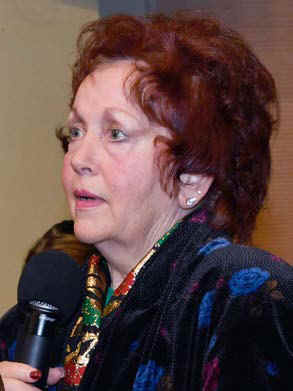 ADAMUS: But it makes you feel good to think you can go in and pull the
lever where it doesn't make a difference.
ADAMUS: But it makes you feel good to think you can go in and pull the
lever where it doesn't make a difference.
CHERYL: No, it doesn't to me. I haven't involved myself in that in years.
ADAMUS: Yeah. Yeah. It's actually pretty common for Shaumbra – some
still kind of go back and forth with it – pretty common to just say,
“You know, it's not my thing.”
CHERYL: It's not mine.
ADAMUS: “Not my battle, not my game,” so they just kind of let that go.
CHERYL: Yeah.
ADAMUS: But I do want to make a point that, as much as Shaumbra is
pretty much letting go of that, realizing it's not going to do much to
help at this point – what really helps is when you become Realized,
that does more than anything in the world – but there's still that kind
of desire for a lot of Shaumbra to go back to being energy workers on
the planet, going back to they have to have that battle to fight –
politics, Donald Trump, the environment, whatever it happens to be. You
know, there's still, it still pulls them back. I notice that quite a
bit. Yeah. Thank you. Good answers.
LINDA: Can we ask this guy from Israel? I'm really curious.
ADAMUS: Yes, but do warn him not to bash his head on that big thing (TV)
on the wall.
SAGY: I've been warned, yes.
ADAMUS: Yes.
SAGY: Okay.
ADAMUS: Yes. Is humanity where you expected it to be? By the way, good to
see you. I haven't seen you for a long time.
SAGY: Thank you.
ADAMUS: Three lifetimes, I think.
SAGY: At least.
ADAMUS: Yeah, yeah, yeah.
SAGY: At least.
ADAMUS: Good.
SAGY: Thank you very much.
ADAMUS: Yeah.
SAGY: I had no expectations.
ADAMUS: No expectations.
SAGY: No. When I grew up, I had a lot of fears in me.
ADAMUS: Yeah.
SAGY: And …
ADAMUS: You know, with bombs going overhead every day, I'd say …
SAGY: Every …
ADAMUS: … understandable.
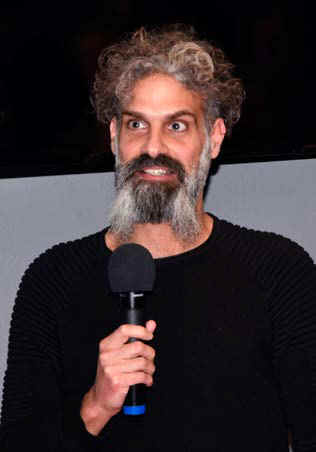 SAGY: Yeah, right. It wasn't only that. It was just seeing everything
dark and then I changed my perspective and now I see both sides, and
it's pretty cool.
SAGY: Yeah, right. It wasn't only that. It was just seeing everything
dark and then I changed my perspective and now I see both sides, and
it's pretty cool.
ADAMUS: Yeah. It is!
SAGY: And I can even appreciate a guy like Donald Trump. I mean, he's a
caricature. He's quite ridiculous, but he's standing out for something
out there, right?
ADAMUS: Exactly.
SAGY: Yeah, and he's all business, from his point of view, and that's
where humanity is right now.
ADAMUS: And something is moving anyway.
SAGY: Right.
ADAMUS: We're not sure which direction, but it's moving.
SAGY: Right.
ADAMUS: Yeah. And better than begin stuck, absolutely. So – well, let's
go to your home base – is the Mideast where you expected it to be,
let's say, when you were younger or before you came into this
incarnation?
SAGY: No.
ADAMUS: No. Where did you expect it to be?
SAGY: Not where it is right now (he chuckles). It's the only thing that I
can say.
ADAMUS: You mean like off the map? Or everybody is …
SAGY: No.
ADAMUS: … realizes they're all Hapiru, the same family.
SAGY: I kind of hoped more for that, that everybody just realize and it's
a big Kumbaya thing.
ADAMUS: Yeah, yeah.
SAGY: But it's not and it's also okay. It's like …
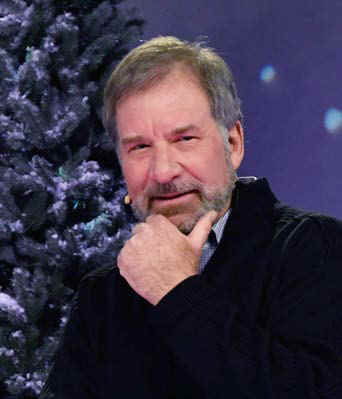 ADAMUS: But you realize in the Mideast, predominantly most beings that
are there right now are from the same spiritual family called Hapiru
and family fights are the worst. And then if anybody from the outside
comes in to interfere with the family fight – boom! – they get blasted
too.
ADAMUS: But you realize in the Mideast, predominantly most beings that
are there right now are from the same spiritual family called Hapiru
and family fights are the worst. And then if anybody from the outside
comes in to interfere with the family fight – boom! – they get blasted
too.
SAGY: Yeah.
ADAMUS: So, yeah, it's an old family fight.
SAGY: Right. That's why I'm here and not in Israel (laughter).
ADAMUS: Yeah. Thank you. I'm glad you're here. Delighted to have you. Good
to see you again.
SAGY: Thank you.
ADAMUS: One of these days I'll share a story about you and I.
SAGY: All right.
ADAMUS: Yeah.
SAGY: Thank you very much.
ADAMUS: One more.
LINDA: Oh, one more.
ADAMUS: Is the planet where you expected it to be right now?
LINDA: Oh, let's see.
ADAMUS: 2019.
LINDA: You knew it.
MARY SUE: No.
ADAMUS: No. That was clear.
MARY SUE: It's very clear.
ADAMUS: Yeah, yeah. And where did you expect it to be?
MARY SUE: I thought it would be more Kumbaya than it is.
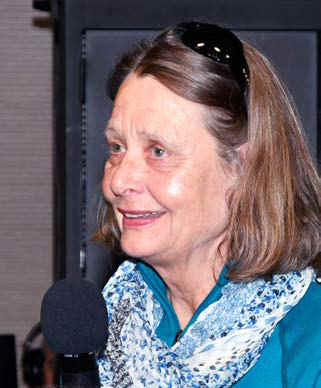 ADAMUS: Yeah. Yeah, and when you came back in for this lifetime, when
you were kind of getting ready and thinking, “Oh, the planet is really
going to be doing a lot better, and, you know, we finished World War
II. That's out of the way. Now we can really bring the world together
and …” Wow.
ADAMUS: Yeah. Yeah, and when you came back in for this lifetime, when
you were kind of getting ready and thinking, “Oh, the planet is really
going to be doing a lot better, and, you know, we finished World War
II. That's out of the way. Now we can really bring the world together
and …” Wow.
MARY SUE: I am shocked at how much is coming out. I realize that stuff
has been going on even when I was smaller and didn't know it.
ADAMUS: Right.
MARY SUE: But I'm just amazed at how open it is and how nobody seems to
care.
ADAMUS: Right. Right. Good. So, how would you describe the emotion that
you're feeling with this?
MARY SUE: I never watched soap operas, but now I feel like I'm in one
(they chuckle). And it's kind of fun. I'm enjoying looking at the news
just briefly every day, and I find myself shocked at what's happening.
ADAMUS: Yeah. It is, and it can be sad at times, and it can really
weigh heavy on you and there could be parts of you that think that
you've got to go out there and somehow save the planet, which I'm not
indicating that you are. But there is that tendency, “I've got to do
something for this planet.” And the reason why I asked this question –
thank you – the reason why I asked this question to start the new year
is for a couple of reasons.
↑ ↑ ↑
A lot of you came in here with big hopes. Bar none, every one of you
here or online, knew that this was going to be a big lifetime for you.
There was a lot of expectation back before you came in or, let's say,
when you were very young, that you were going to do something
outstanding to help the planet. Some of you had dreams about it, I
mean, either sleeping dreams or waking dreams. Many of you had
aspirations to do something, invent something that was going to really
help humanity or create a business that was going to have a huge impact
on the planet, and then it didn't happen. And then your life got
derailed in a lot of different ways. And then, kind of that old dream,
that feeling, “This is going to be such a lifetime and I'm going to do
something significant for this planet to help bring it together, to
help kind of Kumbaya the whole thing, to end wars, end hunger and end
slavery.”
Then you got sidetracked. You might have thought you had made mistakes
or done something wrong, and then things started falling apart –
whether it's your work or your family or all the rest of that, started
crumbling apart – and then that dream, that knowingness seemed like
such a distant echo. And then you got to the point where it's just
barely surviving, I mean, just keeping your wits about you every day
and trying to keep your health in balance and all the rest of that.
But I don't want that dream to go unrealized. I don't want that dream
to go forgotten, because it's bigger than ever before. It's not what
you might have expected. You might not be the one that cures cancer or
finds a way to distribute food to the poor or invent some sort of new
technology.
You're doing something else, and you know exactly what it is. You're
allowing your Realization. That was what you felt way back when, “This
is going to be such an important lifetime. I'm going to do something
important.” And a lot of you think, “Oh, geez! My ego got in the way. I
wanted to be a big shot and famous and everything else.” No, actually,
your motivation was to do something for the planet, something really,
really important, but it wasn't like what you expected. It wasn't being
the CEO of a big company or the president of a company or of the United
States. It's done very quietly. It's what you're doing right now. Right
now.
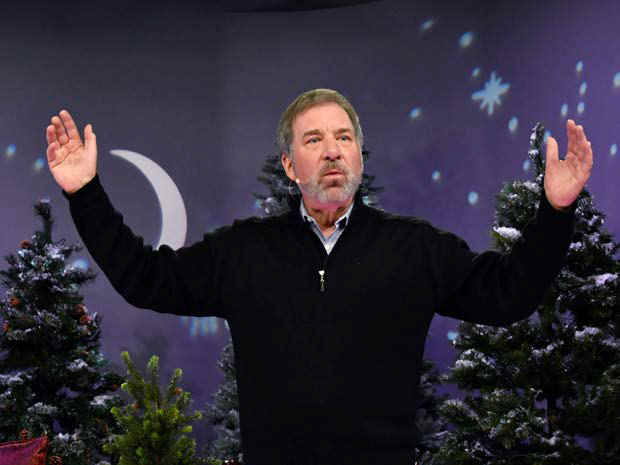 And as much as part of you is saying, “But I'm not doing anything,” I
want to scream when you say that (a few chuckles). “I'm not doing
anything. I just sit at home, and I'm not, you know, my name isn't in
the headlines. And I haven't written a book yet and I haven't started
my new healing practice.” You're doing what you came here to do, and
it's done quietly. It's got to be done quietly. You're doing more for
this planet than the one who figures a cure for cancer. It's a big
statement, but it's very true.
And as much as part of you is saying, “But I'm not doing anything,” I
want to scream when you say that (a few chuckles). “I'm not doing
anything. I just sit at home, and I'm not, you know, my name isn't in
the headlines. And I haven't written a book yet and I haven't started
my new healing practice.” You're doing what you came here to do, and
it's done quietly. It's got to be done quietly. You're doing more for
this planet than the one who figures a cure for cancer. It's a big
statement, but it's very true.
It just takes a few. Not religion, not rhetoric. It takes a few
allowing themselves. That's all it takes. We're going to have a big
discussion about that in a week with ProGnost, what the hell is
happening right now and why. It just takes a few. That affects more
change than anything else, and not because you're proactively trying to
change the world. Remember, that's being out of compassion. But when
your light shines, to put it quite simply, your radiance illuminates
potentials that they might not have ever seen.
You could just be standing at a coffee shop waiting for your coffee and
here comes a drug addict – what do you call, a meth head – coming right
behind you to get their coffee with the money they just stole, and you
don't have to say a thing. You don't have to do hocus pocus on them or
Reiki. Your presence is all that matters. That's it, because your
presence is – for lack of better words – light. It is awareness,
consciousness. And suddenly they may see the potential that they're not
a meth head, that they're not addicted, that they don't need to steal.
And they might never even know this came from you, ever. They just know
that suddenly they had a revelation while drinking their coffee and
maybe thought their coffee was spiked or something, but that's what you
came here for. That's what you came here for.
Ah, I love feeling back into your aspirations and your desire for this
lifetime, not really knowing exactly how it would turn out, but knowing
that it would. And you're doing it right now.
That's one of those statements that I have to keep saying, because you
still don't believe it. You're still like, “Eh, it sounds really good,
but Adamus must be talking to the person next to me, because I'm not
doing that much.” You can't possibly imagine, in the human logic, what
you are doing, and that's why I love working with you. That's why I
love both provoking you, kicking your butt and loving you.
So, let's take a good deep breath with that.
Expectations. The planet isn't what you expected it to be. A lot of you
thought it was going to be blown up by now. A lot of you thought
everybody would get together, we'd have just this wonderful, global
planetary love and Kumbaya and neither has happened, but yet a lot is
happening.
Ego
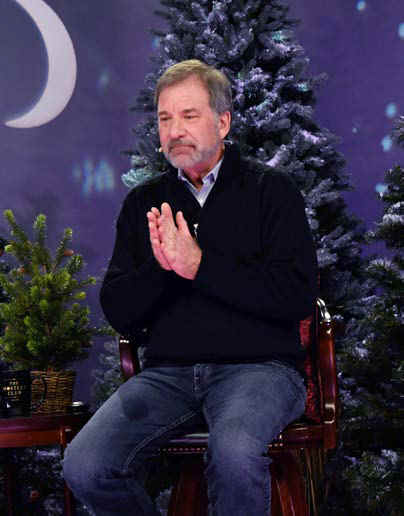 I want to talk a little bit about ego. Ego. And, you know, when we were
just talking about what you're really doing here on the planet, you
know there's part of your ego that says, “I'm going to be important,
maybe famous, maybe rich, but I'm going to” – your number one priority
is – “I want to do something for this planet.” That's a real, real
common thread with all of you, “I want to do something for this
planet.” And then you start thinking, “Well, that was my ego.”
I want to talk a little bit about ego. Ego. And, you know, when we were
just talking about what you're really doing here on the planet, you
know there's part of your ego that says, “I'm going to be important,
maybe famous, maybe rich, but I'm going to” – your number one priority
is – “I want to do something for this planet.” That's a real, real
common thread with all of you, “I want to do something for this
planet.” And then you start thinking, “Well, that was my ego.”
You know, I worked with, I knew Sigmund Freud. I really did (Adamus
chuckles). I really did. And, you know, he popularized “ego,” the whole
term. It wasn't really talked about much prior to that, but he kind of
helped define ego and popularize it and get people thinking about his
ego, but he also villainized the ego. That was the sad part of his
work. Villainized the ego, like it was a bad thing, like it was your
shadow. He made the ego to be kind of a negative and even today people
say, “Well, you have a big ego.” Well, okay! (Adamus chuckles). Gee,
thanks!
By the way, there's no size to ego. You can't have a big ego or a
little ego. You can't have a bad ego or anything else. An ego is just
an ego. Ego, derived from the Latin word, “I go” or some would
translate it as meaning “moving forward” or just moving, doing
something. Ego. Actually, the ego is a beautiful thing in so many ways,
but, well, it was kind of villainized, kind of made to seem bad.
Let's take just a moment to feel into the human ego. Let's take a
moment. Just the word. What kind of feeling does it bring up? Ego.
(pause)
And Linda with the microphone. I'd be curious, one word that comes to mind
to define the ego. One word.
↓ ↓ ↓
SHAUMBRA 1 (woman): Power.
ADAMUS: Power. Yeah, okay. Good. Linda, you just keep running with that
microphone. Ego, power.
DIANE: Self.
ADAMUS: Self, okay. What kind of self, though?
DIANE: My individual identity.
ADAMUS: Mm, okay. What kind of identity? (she chuckles) Is this
something you want to have more of? You want to have more ego? Less
ego? Something you need to work – is your ego something you need to
work on?
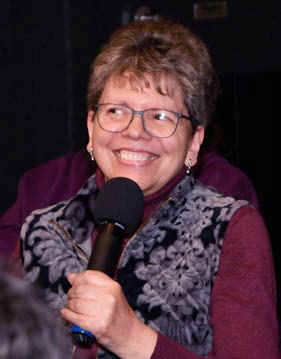 DIANE: I don't think – I don't work on mine as far as I am aware.
DIANE: I don't think – I don't work on mine as far as I am aware.
ADAMUS: Okay. All right. Others?
DIANE: Oh, yes.
ADAMUS: You ever accuse somebody of having a big ego or just think it
even?
DIANE: I've certainly thought it.
ADAMUS: Yeah, okay. Anybody in particular?
DIANE: Yesss (laughter), who shall remain nameless.
ADAMUS: Okay. Good, good. Good.
LINDA: They're not standing on the stage, are they? (more chuckles)
DIANE: Could be! (Linda laughs)
ADAMUS: Ego. What word comes to mind when we talk about the ego? The ego.
(Susan pauses)
LINDA: Nancy wants the mike. She won't hesitate. Right here.
ADAMUS: No! She was going to give a good one! I liked it!
LINDA: Well, wait! Nancy's going to give hers first, then she'll come
back.
ADAMUS: No! I wanted to hear what you were going to say.
LINDA: Okay, go ahead.
SUSAN: The essence of the human.
ADAMUS: Essence, okay. Yeah.
SUSAN: The human.
ADAMUS: The human. Okay. There … okay, I won't add my words yet.
NANCY: For me, I think it's a part of the trinity…
ADAMUS: Part of the trinity.
NANCY: … of myself.
ADAMUS: Yeah, divine, Master and ego.
NANCY: Yeah.
ADAMUS: Okay. You like your ego?
NANCY: Yep.
ADAMUS: Okay. Let's keep going with the words. We're just getting warmed
up. Ego. What does it bring up?
TOM: Pride.
ADAMUS: Pride. Okay. Let's keep digging in there. Ego.
CAROLYN: Conceit.
ADAMUS: Conceit. Okay. Have you ever been conceited?
CAROLYN: I think so (some chuckles).
ADAMUS: You probably have been and that's okay.
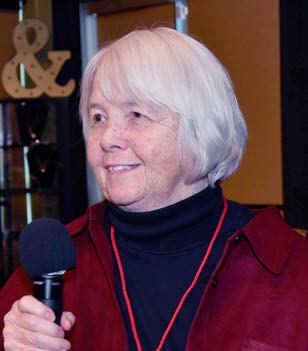 You know, part of the point here in this is that there are so many kind
of negative attributes attached to ego – conceit and being arrogant and
pompous and all the rest of that. As we continue our discussion here,
just really feel into all these words, all these attachments to ego.
You know, part of the point here in this is that there are so many kind
of negative attributes attached to ego – conceit and being arrogant and
pompous and all the rest of that. As we continue our discussion here,
just really feel into all these words, all these attachments to ego.
Please continue. Ego.
ALI: Self-aggrandizement.
ADAMUS: Okay. Have you done that?
ALI: Yeah.
ADAMUS: Yeah. Have you felt bad about it?
ALI: Yes.
ADAMUS: You get slapped down?
ALI: I slap myself down.
ADAMUS: Exactly, my point.
ALI: Yeah.
ADAMUS: Yeah. Yeah. You slap yourself down. Boom! Wow! Geez!
ALI: Bad Ali!
ADAMUS: Oh! “Bad Ali!” And such an ego, and – oh! – just you're …
ALI: Just be quiet!
ADAMUS: Right, right! Look what happens when you stand out! Yeah.
ALI: Yep.
LINDA: Can't it just be confidence?
ADAMUS: Just let them, please.
LINDA: I'm one of them.
ADAMUS: Please.
LINDA: I'm one of them (some laughter).
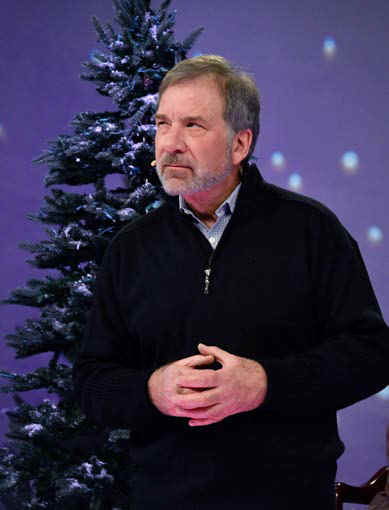 ADAMUS: “I'm one of them,” okay! I know who's next on the microphone.
ADAMUS: “I'm one of them,” okay! I know who's next on the microphone.
SART: It's got to be Sart-isms.
ADAMUS: Sart-isms. Yeah (Sart laughs). Ego.
SART: The bad part.
ADAMUS: Yeah, ego. What word would you give?
SART: (pausing) Just … guilt.
ADAMUS: Pardon?
SART: Guilt.
ADAMUS: Guilt. Okay. Yeah, the look on your face said it all. It's like,
“Eehh …”
SART: Yeah.
ADAMUS: Ego. Okay.
SART: It's a guilt of doing it to other people.
ADAMUS: Right, right. Okay. Good.
SART: Yeah, and right after you do it, you know it harmed them.
ADAMUS: Yeah, so you think.
SART: So you think.
ADAMUS: Or you want to think.
SART: Or …
ADAMUS: Yeah.
SART: So you want it to happen that way.
ADAMUS: Yeah, yeah. Yeah. So, at your worst with your ego, what happened?
SART: Oh, it had to be the worst when I was drinking.
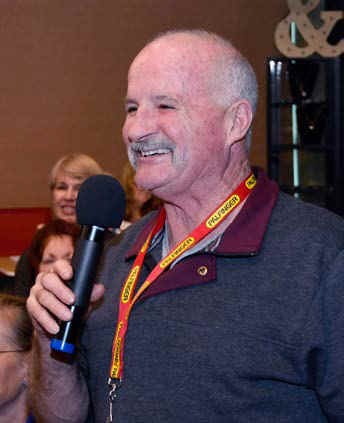 ADAMUS: Yeah. Yeah (Sart laughs). Yeah. How did drinking affect your ego?
(a few chuckles)
ADAMUS: Yeah. Yeah (Sart laughs). Yeah. How did drinking affect your ego?
(a few chuckles)
SART: It let me say anything that came up.
ADAMUS: Right, right, right. And you did.
SART: Oh, I did!
ADAMUS: Yeah. And did you ever get in trouble for it?
SART: Oh, never.
ADAMUS: Yeah, right. Right (they chuckle). So, when you stopped
drinking, did you blame a lot of it on your ego or did others blame it
on your ego?
SART: Yes, definitely.
ADAMUS: So what'd you do with the ego?
SART: I threw it in the suitcase behind me and …
ADAMUS: Oh, no, first you beat the crap out of it (Sart chuckles). Then
you put it in the suitcase behind you, and then you still went and
kicked the suitcase from time to time.
SART: Yeah, then I kicked the suitcase out the door.
ADAMUS: Did you redeem yourself and your ego when you quit drinking?
SART: No.
ADAMUS: No. Okay.
SART: No.
ADAMUS: Do you still battle that ego?
SART: Yeah, I still do.
ADAMUS: Yeah. Is that why you get on that great big, huge, earthmoving
equipment? It's like, you know, you've got that power coming through,
you might as well dig some dirt.
SART: Oh, that helps.
ADAMUS: Yeah! (they laugh)
SART: Definitely helps.
ADAMUS: Could you imagine if you were the CEO of a big company? I
couldn't.
SART: God help the employees!
ADAMUS: Exactly (Sart laughs). Exactly, yeah, because that huge ego!
Oh, my gosh! You would have been right in feeding country. It would
have been like a smorgasbord for the ego.
SART: I would have had to hire new people every morning.
ADAMUS: Right! (they laugh) Right! But with the work you do now, you're
out in nature and you've got some big equipment. Nobody's going to mess
with you because they know that D9 is going to come and take down their
house the next morning, so…
SART: I tell them, “Remember, I have big dump trucks.”
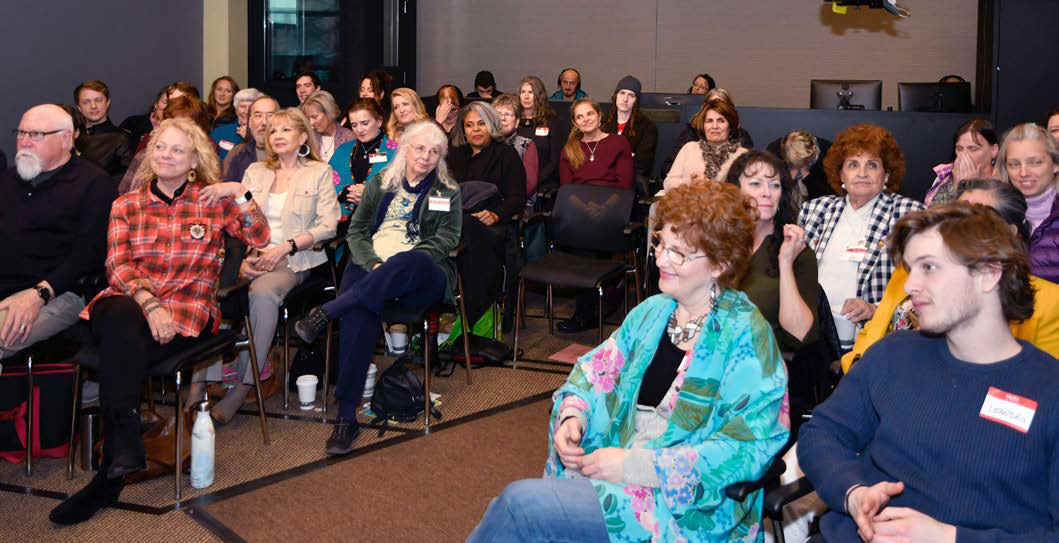
ADAMUS: Right, exactly (they chuckle). Good. Thank you.
SART: Thank you.
ADAMUS: Couple more on ego. What words come to mind?
LINDA: Let's see.
ADAMUS: There's a couple we're missing here, a couple really important
ones.
LINDA: Sylvia.
SYLVIA: Now I'm confused.
ADAMUS: “Now? Now,” you say?
SYLVIA: Now I'm confused.
ADAMUS: What comes to mind when I say the word ego?
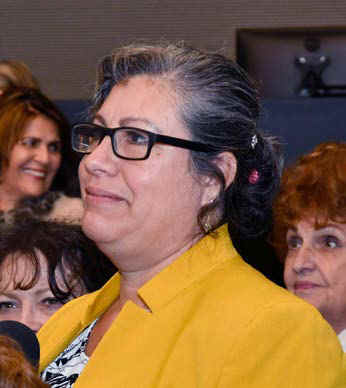 SYLVIA: Ego. As you said, “I go,” it's like secureness of myself.
SYLVIA: Ego. As you said, “I go,” it's like secureness of myself.
ADAMUS: Yeah, yeah. It's yourself.
SYLVIA: For one side, and the other side can be selfish.
ADAMUS: Selfish, okay.
SYLVIA: Just thinking of myself.
ADAMUS: Do you do that very often?
SYLVIA: Try to.
ADAMUS: Try to. Yeah, yeah.
SYLVIA: Or try not to.
ADAMUS: Oh, try not to.
SYLVIA: Yeah.
ADAMUS: That's sad. Wow.
SYLVIA: I am, I am …
ADAMUS: Where'd this all come from that it's bad to take care of
yourself? Where the hell did that all come from? (someone says “The
church”) Exactly. Exactly. I'm not going to do a lot of church bashing
anymore. No, I swore it off for New Years. Yeah, yeah. No more church.
You know why? Because I don't need to anymore. You know, last year, a
year ago when we were talking here and I asked for your observations on
what was going to happen in 2018 and my conclusion was kind of the
falling apart of the church. And “church” I mean generically of all
religions. And to me that's still the biggest thing that happened last
year. Not the thing that made the most news.
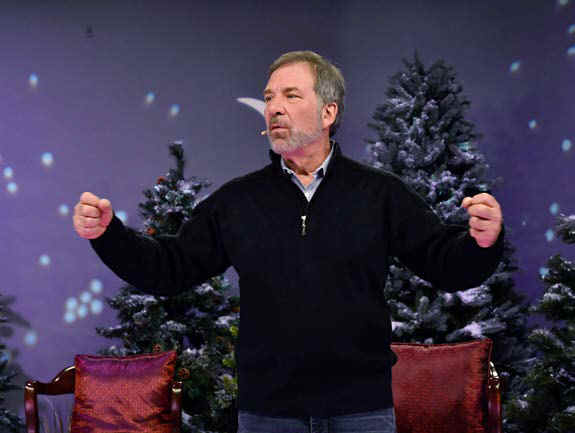 But, you see, when a society has myths – and religion is all myth –
when they have myths, the myths help shape and form their communities
and their values and their morals and their laws, which is what the
world pretty much has. You have a lot of myths – religions and beliefs
– that formed social values and ultimately laws. So, you have that like
up at this level. You've got this, I guess you would call it, stability
of the planet, the way it operates. It's all based on these values that
originally came from myths.
But, you see, when a society has myths – and religion is all myth –
when they have myths, the myths help shape and form their communities
and their values and their morals and their laws, which is what the
world pretty much has. You have a lot of myths – religions and beliefs
– that formed social values and ultimately laws. So, you have that like
up at this level. You've got this, I guess you would call it, stability
of the planet, the way it operates. It's all based on these values that
originally came from myths.
And the myths, it's not actually just about the church as you know it
today. It goes far, far back, even further than that. There are the
myths of the Incas and the Mayans and the Aboriginals and all the other
things that predate Christian myths by, oh, 5,000 years; Egyptians
myths that predate that even by another 25,000 years. So, myths build
the social values and structures. It's the gravity that holds
everything in.
Well, now what's happening on the planet is the church is
deteriorating, falling apart, whether it's Christians or Muslims, the
Jews or any others. There is a huge lack of respect and a lack of, I
guess you would say, belief in a lot of these old religious values. If
it had been me guiding one of the churches, I would have said, “Kind of
update from time to time. You know, let's get over this whole thing
that women can't be priests. I mean, that is so old and so stupid.
Let's update from time to time.” But they're so hell-bent on holding on
to their old ways.
So now it's crumbling apart. You're seeing it on the surface, some of
the stuff. The whole thing with the Catholic Church and the priests and
the sexual abuse that has been taking place for far, far longer than
anybody would want to admit. It's not a recent epidemic. It's been
going on forever. That's causing a lack of confidence and faith in
faith, and when you don't have faith in faith, you've got big problems.
So the underlying structure of the myths is deteriorating. People
aren't believing or following the churches anymore. That starts to
rattle everything on the surface, how community and country and morals
and values and business were built. So that's why I say the biggest
thing that happened last year was the continuing deterioration of
religious values on the planet, and it's going to make a huge impact,
particularly this year, as it crumbles even more.
And it's not, per se, that it's not to say the Catholic Church is going
to go out of business or the Methodists are going to find a different
method (laughter). They might. But it's meant to say that those do not
have nearly the effect on the consciousness gravity on the planet as
they once did. And as those kind of erode away, so do values, which
you've probably seen if you watch the news. Values are falling apart.
The inherent gravity that holds beliefs and laws and everything else
kind of together is falling apart. So that's kind of what's happening.
And then you get a character like President Trump in the office and
he's really kicking the crap out of all that. And I'm not saying it's
good or bad. I'm just saying it's what the people deserve (laughter).
It is! Absolutely. No, and there should be kind of a fundamental
respect for that, and I'm not being political at all. I would not vote
if I was on your planet right now. I'd do what Tobias said, “Stand
behind the short wall” and laugh. Laugh.
So, where were we? (someone says “Ego”)
LINDA: Ego.
ADAMUS: Okay. I need a few more words here. Lights up a little bit,
because Linda's going to run into the audience.
LINDA: Right here.
ADAMUS: Ego. There are a few words we're missing here.
MONICA: To me ego is duality …
ADAMUS: Duality.
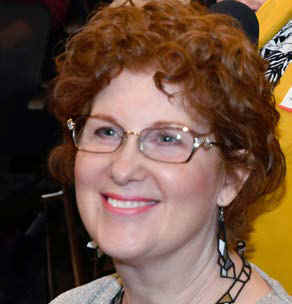 MONICA: … or judgment. Because if I'm not in ego, then it's unity and
things are just as they are. They would be, I guess what you call,
Allowing. So, to me there's my human mind or ego mind, and Spirit mind.
MONICA: … or judgment. Because if I'm not in ego, then it's unity and
things are just as they are. They would be, I guess what you call,
Allowing. So, to me there's my human mind or ego mind, and Spirit mind.
ADAMUS: Okay. Oh, interesting.
MONICA: So any time that I am in judgment I say, “Oh, that's my human
mind. What would my Spirit mind say?”
ADAMUS: Right, right.
MONICA: Yeah. So that's one.
ADAMUS: Oh, interesting. Now you've got a conflict going on between the
two. That's very wise. Thank you. I just need somebody to say it. Gary,
is it going to be you?
GARY: Self-awareness.
ADAMUS: Self-awareness. Yeah. Yeah. Is it good self-awareness or bad?
GARY: Neither.
ADAMUS: Neither?
GARY: It's just awareness.
ADAMUS: Okay.
GARY: It's a knowingness of …
ADAMUS: Do you rely on your ego then for more self-awareness?
GARY: No.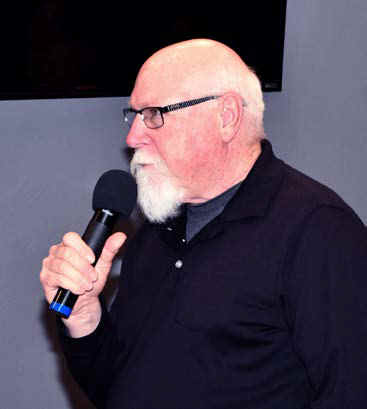
ADAMUS: No. What do you rely on for more self-awareness?
GARY: (pauses) What do I rely on for more self-awareness…
ADAMUS: If you're not getting it from the ego, where are you getting that
self-awareness from?
GARY: From what I sense, from what I feel.
ADAMUS: Okay, fair. Good, because they kind of bypass the ego.
GARY: Yeah.
ADAMUS: Yeah. Okay.
GARY: Hopefully.
ADAMUS: Good. Good answer. All good answers so far. I miss the days
when I could really pick on you for bad answers (some chuckles). I just
so miss that. It made great stories when I went to the Ascended Masters
Club.
LINDA: Moishe.
ADAMUS: Couldn't you have come up with some stupid makyo answer? No, no!
LINDA: Don't!
ADAMUS: You could! (Adamus chuckles)
MOISHE: I could try.
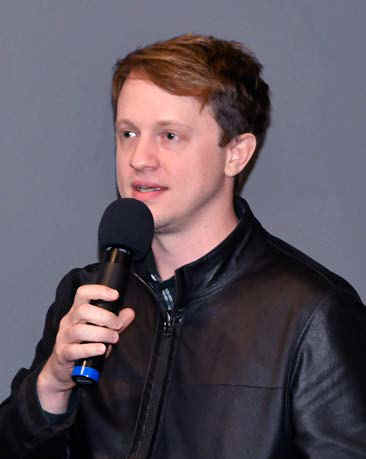 ADAMUS: You could! Go ahead, sir.
ADAMUS: You could! Go ahead, sir.
MOISHE: It's a human confidence.
ADAMUS: Confidence.
MOISHE: And I think that humans look down on it because humans look down
on themselves. But it's a human confidence.
ADAMUS: Okay. Good. Great. I'm still not there yet. I need a couple more.
LINDA: Henrietta thinks she knows the word. Or she thinks you want to pick
on her.
ADAMUS: Both (Linda giggles).
HENRIETTA: Self-preservation.
ADAMUS: Self-preservation. Okay.
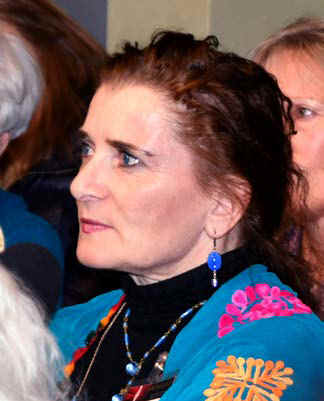 HENRIETTA: It is. Because the larger the ego, the larger the
presentment. The person is really trying to make sure that they're
solid and firm in this human presentment to the world. They're trying
to preserve themselves.
HENRIETTA: It is. Because the larger the ego, the larger the
presentment. The person is really trying to make sure that they're
solid and firm in this human presentment to the world. They're trying
to preserve themselves.
ADAMUS: But what's the fallacy in that? You're getting there. So, it's
self-preservation. It's your, I guess, your defense, in a way.
HENRIETTA: Yes.
ADAMUS: It's your protection.
HENRIETTA: Because the human is afraid to go into nothingness.
ADAMUS: Right. They're afraid of everything, but … (some chuckles)
HENRIETTA: Yes.
ADAMUS: So, you've got this ego that you kind of manufacture and then
you inflate it. You pump it up and part of it's self-preservation, but
then the ego kind of gets off on its own track and starts believing its
own stuff. But what's inherent, what's the problem? Let's stop the
movie for a minute. You've got this big ego, what's the problem with it?
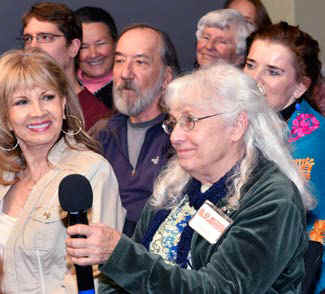 HENRIETTA: Because they think it's real. I mean, the larger the ego,
it's real to that person. It makes it firm and solid and their human
presentment.
HENRIETTA: Because they think it's real. I mean, the larger the ego,
it's real to that person. It makes it firm and solid and their human
presentment.
ADAMUS: What's the real problem? You're getting really close and you're
inspiring somebody that's going to give the answer here in just a
moment.
CAROLE: Self-judgment and projection.
ADAMUS: That's getting there. 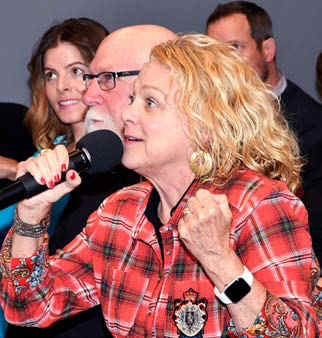 We're almost there. Self-judgment and
projection. You've got this ego that is kind of inflated, that's kind
of pompous and arrogant, but it's the identity and it's you, but what's
the problem with it?
We're almost there. Self-judgment and
projection. You've got this ego that is kind of inflated, that's kind
of pompous and arrogant, but it's the identity and it's you, but what's
the problem with it?
TAD: Fear.
ADAMUS: Almost there.
TAD: Oh! Fear-ish! Fear-esque! Fear.
ADAMUS: Okay. Ehhh! I'll give you that. The judges give you that, but I'm
looking for another word. You're so close. So close.
ALICE: I'm going to the toilet (she chuckles).
ADAMUS: She's going to go to the toilet! (laughter) Yeah. Just make
something up. Anything.
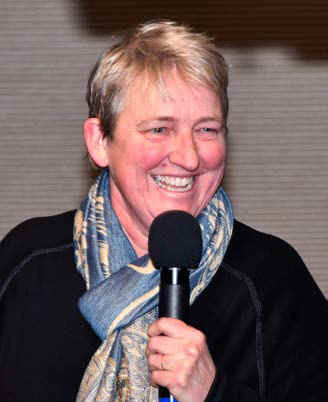 ALICE: That's a good one, recognition.
ALICE: That's a good one, recognition.
ADAMUS: Recognition. Yeah, okay. I would have made up something different
(they chuckle).
ALICE: I was actually going to say kind of what Gary said, human
self-awareness. When I think of my own ego, it's who I am as …
ADAMUS: Do you have an ego? Do you have a big ego?
ALICE: I have an ego. There's no size, but I'm aware of this human …
ADAMUS: Do you have a dynamic ego?
ALICE: Oh, yeah!
ADAMUS: Oh, yeah! (laughter) Oh, yeah, yeah, yeah, yeah. Yeah. What's the
problem with your ego?
ALICE: There's nothing wrong with mine! (laughter and some applause)
LINDA: That said it all! (Linda chuckles)
ADAMUS: Yeah. And you should add onto that, “And what's wrong with yours?”
ALICE: Yeah! Yeah! What's wrong with yours?!
↑ ↑ ↑
Adamus' Definition of Ego
ADAMUS: Ego. I'll give it away here. You were so close on this, Tad,
but ego is fragile. (audience says “Oh”) It's fragile! It's this great
big dynamic, kind of makyo self-preservation, identity, all the rest of
that, whatever you say; it's frickin' fragile. It is so fragile, it's
like it's more fragile than an egg. If anybody touches it, it falls
apart (teary voice). It doesn't know what to do! After all of its being
a blowhard, somebody just like looks at it wrong and it falls apart!!
It's not real. It's an illusion. It is real, but it's an illusion and
it's really not you.
Yet, humans identify – and I still have a beef with Freud. If he ever
tries to get into the Ascended Masters Club, I'm going to vote him down
(laughter). No, he's got to make up for some of this. He made the ego
out to be a bad thing and fragile and nasty and all the rest of that.
He really villainized the ego.
But to my point here and – what was my point in what we're doing here?
I do have a point. The ego. I define – would you write this on your
magic wonder pad or whatever that thing is that you use?
LINDA: Okay.
ADAMUS: Is that it?
Okay, the ego, my definition of the ego. It's your experience … (pause
and some chuckles; there are technical difficulties) I thought it was
supposed to appear on the screen by magic, and it's not there. So
Linda's just writing to herself (Adamus chuckles). Don't you love
technology? Oh, it's so useful. Where's my white board? We could have
this done if we could just write it out.
LINDA: Shush! Keep going.
ADAMUS: Keep going?! You've got to write. You have to write.
LINDA: Not my fault.
ADAMUS: Yeah. Let's get the camera on this little commotion over here
(Peter is helping Linda with the iPad). And some lights up. I want
everybody to see what's – oh, we've got to figure this out. Yeah.
LINDA: Thanks, Adamus. We really love this kind of attention.
ADAMUS: I know. Don't you – under technical pressure. Ooh! There's a
reason why I'm toying with you like this.
LINDA: Really?
ADAMUS: Yeah, yeah. You'll learn in just a minute.
LINDA: Okay, “Your experience …” (someone says “Yay!” as the image appears
on the screen)
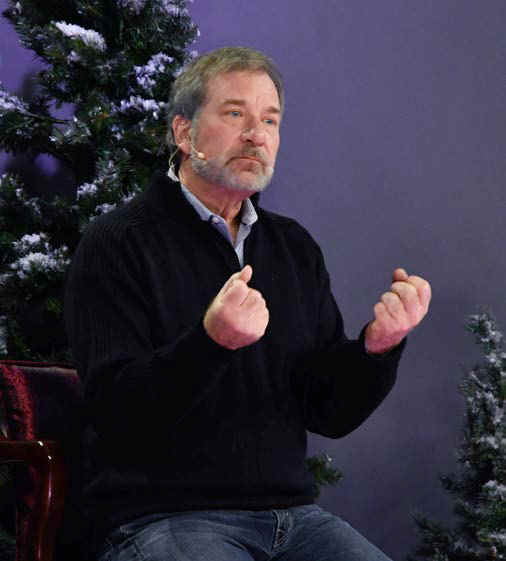 ADAMUS: “Your experience based on your emotional stories” – this is the
definition, my definition of ego, which is the only definition (a few
chuckles) – “Based on your emotional stories as seen through others.”
ADAMUS: “Your experience based on your emotional stories” – this is the
definition, my definition of ego, which is the only definition (a few
chuckles) – “Based on your emotional stories as seen through others.”
LINDA: Ooh.
ADAMUS: By the way, I love coming in as Adamus. I get to be a little
bit more carefree than St. Germain. And, you know, I joke around. I act
a little arrogant and pompous at times on purpose. And I talk really
well about myself, because I can. But I want to get you into that habit
of being able to do that. Talking really good about yourself, but not
serious good. You know, not like, “I'm the most special person in the
world.” (some chuckles). You know, it's like, no, talk good about
yourself with a smile on your face, okay? And joke about it and get
other people kind of laughing, you know. And there's going to be that
little thing that says, “Oh, that's my ego, and I'm being so arrogant.”
Oh, yeah. Oh, yeah. And it's fun.
So where were we? “Your experience based on emotional stories.” Every
story is emotional. Everything that comes through your mind is
emotional. Everything. And I had an argument recently – I won – I had
an argument recently with a friend that's here today, I'll introduce in
just a moment, and this friend said, “What do you mean, Adamus,
everything is emotional? How about a number? Is that emotional? Does a
number have emotion to it?” And I said, “6-6-6” (someone shouts “Ohh!”
and someone else says “Bravo”), and then I said, “Thirteen” and
“Forty-four” and “A million five hundred and seventy-two,” just because.
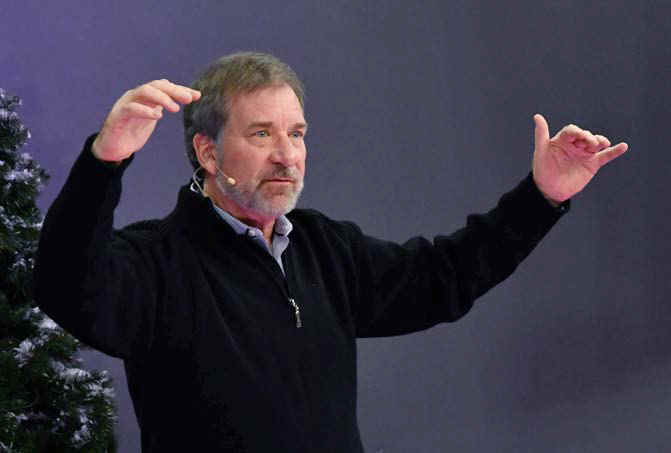 Everything is emotional. Every story you've ever had is all emotion.
There's actually really no logic. It's kind of a false thing to say
that there's really logic on this planet. It's all based on emotion.
Every decision you make is based on emotion. You think you research the
best car to buy? It's emotion! You're justifying your emotions through
research and saying, “I'm really a smart person, because I bought a
Prius.” No, it was based on emotion, because your emotion brings out,
“I'm a tree hugger. I don't use carbon in my automobile.” It's all
emotion. You justify it and call it logic and you bought a Prius,
which, by the way, is a fine car. Where were we? Oh, okay.
Everything is emotional. Every story you've ever had is all emotion.
There's actually really no logic. It's kind of a false thing to say
that there's really logic on this planet. It's all based on emotion.
Every decision you make is based on emotion. You think you research the
best car to buy? It's emotion! You're justifying your emotions through
research and saying, “I'm really a smart person, because I bought a
Prius.” No, it was based on emotion, because your emotion brings out,
“I'm a tree hugger. I don't use carbon in my automobile.” It's all
emotion. You justify it and call it logic and you bought a Prius,
which, by the way, is a fine car. Where were we? Oh, okay.
The interesting thing about the ego – it's so fragile, because it's all
based on what other people think of you. The ego is, for the most part,
not based on your own observations of your own self. It's the
observations of how people observe you. Therefore, the ego is very,
very fragile, subject to anybody's input, anybody's impression.
The ego is – I'll give you an example. So you go to tell a joke and
most of you are not really good joke tellers. No, you're not, because
you're not, you're not – eh, you're not funny (laughter). No, you're
still too serious, you know? Lighten up, take off those tight underwear
and then you can tell jokes. So you go to tell a joke, which you think
is really, really good and you heard somebody else tell the joke and
everybody laughed, and you tell the joke and nobody laughs. As a matter
of fact, all of a sudden you realize that they think it was politically
incorrect, because you don't tell jokes about old people or whatever.
Actually, it's the most fun. But suddenly you realize nobody laughed.
Now your ego is going to form a thing, “I am not a funny person. I
should never tell a joke again. That was really bad.” That goes into
your ego, as well as everything else.
The ego up to now has been based on your experiences, which are all
great – experiences are wonderful – now an emotional story, which is
okay, as long as you recognize it for that. It's an emotional story.
That's all it is, and the story can change. But the part that doesn't
work so well here is “as seen through others.” How they perceive you.
So, let's take a good deep breath with that, as I make my point that
the ego, because of Freud and because of you, has not been a friend. It
has not been a friend at all. It's been something that you've tried
running from, hiding from, polishing, working on, destroying, blowing
apart, reinforcing, all the rest of that, this thing called an ego.
And the origins of ego, Latin, “I go. I go forth. I experience. I
expand. I go forth.” So your first new friend in this year is your ego.
Ego is a fine thing. It's self-awareness, as was said before. It's
self-awareness, but no longer through the eyes of others, how they
react to you.
You know, how it is when you get dressed for the day, you put something
on and you walk outside and somebody just looks, like, looks like just
like this little look like that (he gives a disdainful look), and
you're like, “Oh! Oh! This is terrible. I shouldn't have worn this. I'm
wearing an orange …” what kind of … it looks like a lumberjack shirt
with a royal crest on it (describing what Tad is wearing). I mean, who
would wear something like that? (a few chuckles) And it looks great.
But the ego is like, “Oh! I shouldn't have worn that. I'm going to
stand out and this looks stupid.”
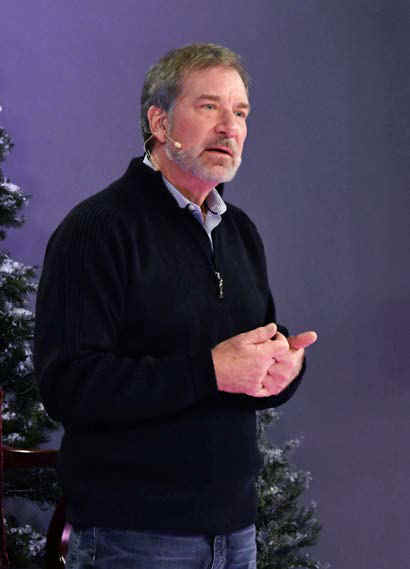 So, the first thing let's do is drop the third part here, “As seen
through others.” It doesn't matter anymore. It doesn't matter anymore.
So, the first thing let's do is drop the third part here, “As seen
through others.” It doesn't matter anymore. It doesn't matter anymore.
The emotional story part? Yeah. The stories up to now have been
emotional and emotions can be good and fun. They're very
human-oriented. But let's change that to not just “emotional stories,”
but let's change it to, let's call it instead based on – what word to
replace emotions? How do you want your stories to be? “Based on” – what
would we say? (someone says “Your best stories”) Your best stories,
awesome stories? Let's change that from “Based on your” – how about …
(someone says “Creative”) Creative? (someone says “Entertainment”)
Entertaining? How about “Wise?” How about wise? You know, wise can
still be emotional. Wise can be awesome and outstanding, but bringing
in the wisdom. Bringing in the wisdom now. No longer you perceiving
yourself through other people's reactions to you, but now it's your
wisdom in your stories. And they can be funny. They can be tragic. They
can be heartfelt. They can be brutal. It doesn't matter, but now you've
got the wisdom.
So while we're at it, Linda …
LINDA: Wait I'm finishing (writing his new definition).
ADAMUS: (chuckling) “Bringing in your wise stories.”
LINDA: “Wisdom” or “wise stories?”
ADAMUS: “Your experiences based on your wise stories.” Yeah.
Let's really feel into that for this year. I mean, this is where you're
going. You really don't actually have to work on it. But let's … yeah
(laughter as the image goes away again). I didn't … I didn't. Ain't me.
Not this time (someone says “Linda won”).
So, your best friends for this year, your new friends coming in, the
year of new friends. First, you. The ego. Let's breathe the ego in.
It's not a bad thing. It's the human in experience and that's what the
human is here for, to experience. But as you breathe in your new
friend, the ego, which is not a bad thing at all – you can have a lot,
I mean, you can really be full of ego – it just means, “I go, I
experience. I Am that I Am,” but now with the wisdom.
A Second Friend
The second friend coming in, been coming in for a while, but you're
really going to notice it this year, is the Master. I call it the
Master and what it really is is the wisdom. Some would call it
divinity. That sounds a little airy fairy. I just like “wisdom” and
“the Master,” because it's the essence of all the stories, whether
they're emotional or tragic or anything else. It's the essence.
So this year, that Master – who we kind of started bringing in about a
year or two ago really, I mean, integrating – is going to play such an
important part in your life this year, because you're Allowing. That's 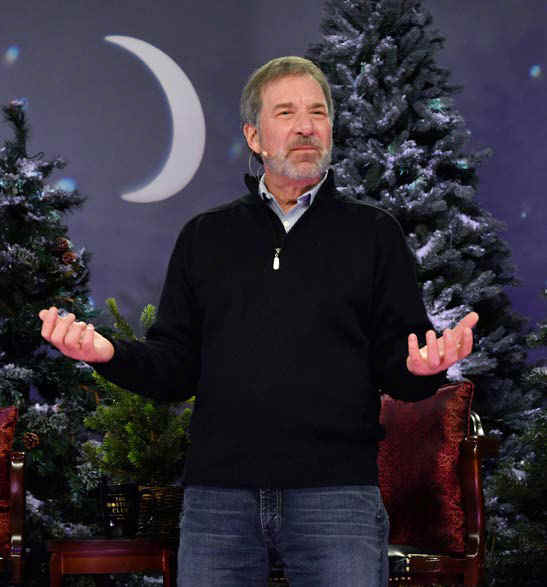 it. You're allowing a part of you that you really don't know, that
hasn't been all distorted by the old ego, the human ego. The Master is
pure and never – you can't taint the Master. Human always worries, “Am
I going to pollute something or really mess this up? Because I mess
everything else up.” You can't. Wisdom is wisdom. That's all it is, and
it's not judgmental or anything else.
it. You're allowing a part of you that you really don't know, that
hasn't been all distorted by the old ego, the human ego. The Master is
pure and never – you can't taint the Master. Human always worries, “Am
I going to pollute something or really mess this up? Because I mess
everything else up.” You can't. Wisdom is wisdom. That's all it is, and
it's not judgmental or anything else.
So let's take a deep breath for the Master coming in. This is going to be
your other new friend in a very intimate way.
Now, that being said, some of you are like, “Okay, Adamus, we've talked
about this before, talked about the Master coming in. I've tried
calling out. The Master picks up the phone and hangs up on me.”
(laughter) “I don't really understand this Master thing. Is it just a
super, like, ego? Is that it?” No, no, no, no, no. No, the Master is
not a super ego. The Master is simply wisdom and there's wisdom
inherent in everything you do. But you've been resisting and avoiding
it and saying that your ego, you know, you've got too much ego and you
can't handle all the rest of this. But now you've got the Master coming
in, the wisdom coming in.
So, we're going to invent a whole new word here. Linda, if you would go to
a new sheet of … screen?
LINDA: Oh.
ADAMUS: A whole new one. Great. Clean. Write – over on the right
two-thirds of the page – write the word “EGO” in uppercase. That was
quick (some chuckles, and more technical troubles). There's a reason
for all this. I apologize. I'll tell you in a moment. There's a reason,
and it's nothing that you're doing. I'll explain.
So, we're going to invent a new word.
(pause)
She's writing it, but it's not up on the board … (pause as Peter is
helping her again).
Anybody know a good joke? (a few chuckles) You wouldn't dare tell one
now, would you? (Adamus chuckles) Everybody's looking at you like,
“What?!” Yeah. How many consider yourselves really funny? Oh, got a
couple Okay. Yeah. Yeah. Okay. Good. Kind of. Kind of. Yeah. Okay.
So let's get that white board over there, the thing with paper on it that
actually works.
Somebody's telling me I'm being a dick. Yes, I am (audience says “Ohh!”).
LINDA: Okay.
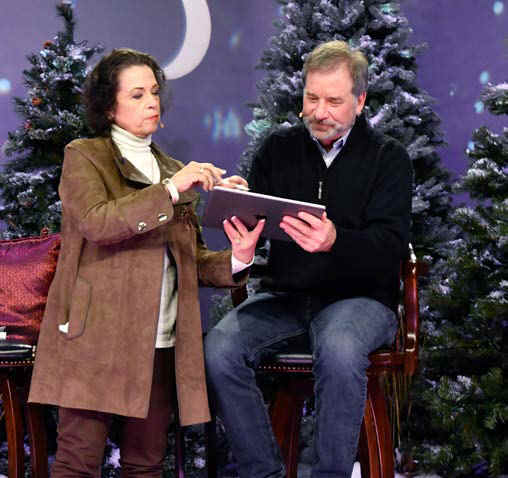 ADAMUS: Okay. Let's try that again, Linda. Write that word on the
two-thirds of the right side of your magic screen.
ADAMUS: Okay. Let's try that again, Linda. Write that word on the
two-thirds of the right side of your magic screen.
LINDA: Two-thirds of the right side?
ADAMUS: Uppercase, “EGO.”
LINDA: On the right side?
ADAMUS: Yes. Start – yeah. Oh, this is going well (the screen is
malfunctioning again, some chuckles).
LINDA: What?! Give it a second.
ADAMUS: Come here. Give it to Uncle Adamus here. Give me a new page.
LINDA: Okay.
ADAMUS: Yeah, brand new page. Okay. Whoops!
LINDA: Good job (a few chuckles).
ADAMUS: None of this is my fault. I'll explain in a moment.
LINDA: Of course not.
ADAMUS: It's somebody's bad sense of humor. Okay. Really bad sense of
humor, you're going to pay for this later. I need a new page. Now I'm
all whacked out (more chuckles).
LINDA: You're whacked out?
ADAMUS: There's a lot of laughter on the other side. I'll explain (some
chuckles). Okay. Okay, we're going to invent a new word for 2019 …
(he's trying to write)
LINDA: Apparently not (more chuckles as it doesn't work). You thought I
was screwing up? It wasn't me!
ADAMUS: That's not … see what I'm writing is not what's showing. All
right. Let's just get on with it. Imagine the word “ego,” e-g-o. Think
of it written on the screen there, even though it isn't. Now we're
going to put … (someone says “Paper's coming” as Peter brings the large
writing pad) Paper's coming. Oh, thank god! Thank god! Back to good old
fashioned paper. Yes. (someone shouts “Reliable!”) Yes, reliable paper.
Watch, the pen won't work. Why are you giving that to me? (the iPad)
LINDA: Because it's working!
ADAMUS: I need a new screen.
LINDA: No, you don't need one. You can erase that.
ADAMUS: No, I need a new – oh, erase.
LINDA: Okay.
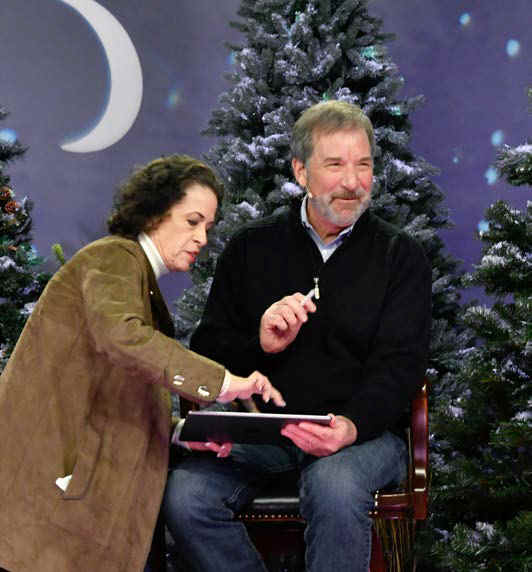 ADAMUS: (sighs and some laughter) This is … (Linda is panting as she
erases the screen) It's look really funny on the camera what you're
doing there (more laughter).
ADAMUS: (sighs and some laughter) This is … (Linda is panting as she
erases the screen) It's look really funny on the camera what you're
doing there (more laughter).
ADAMUS: Stop that!
LINDA: You don't like it?!
ADAMUS: Stop that!
LINDA: Are you saying you don't like it?! (laughter) Really, you don't
like it?! Are you sure? (more laughter)
ADAMUS: Stop that! (Adamus laughs) Okay, yeah! There are children watching
this! Okay. Are we free to go?
LINDA: No, you have to hit this. Hit marker.
EDITH: Here's your tablet.
LINDA: Hit the marker.
ADAMUS: Technology.
LINDA: There. There.
ADAMUS: Okay. All right.
LINDA: I think we got it (some chuckles, and a pause as he writes).
ADAMUS: Oh, I don't like the way I'm writing.
LINDA: Oh, it's working! It's working!
ADAMUS: But this is very sloppy. Cauldre's not a good …
LINDA: Here.
ADAMUS: Give me … no, no. I need a new sheet. I need a new sheet.
LINDA: I can't give you a new sheet.
ADAMUS: This will go down in the annals of … (more laughter)
LINDA: Try this.
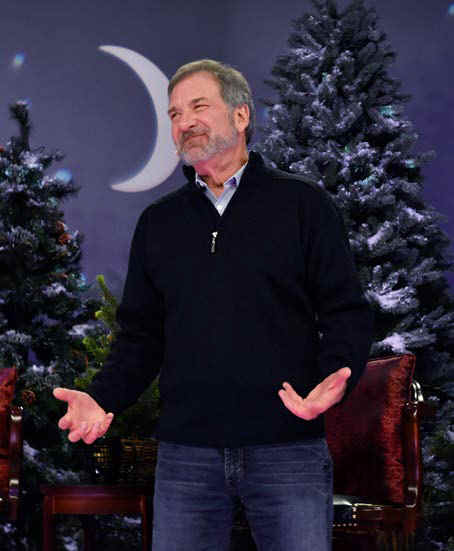 ADAMUS: Okay, all right. You write it. First, start on the right-hand side
…
ADAMUS: Okay, all right. You write it. First, start on the right-hand side
…
LINDA: Okay.
ADAMUS: … and write the word “O.”
LINDA: “O”?
ADAMUS: It's a letter.
LINDA: It's a letter.
ADAMUS: Okay. Now write “G” (laughter). Now write an “E.” (Adamus
chuckles)
Okay. Now, let's take a deep breath. We're going to invent a whole new
word, consciousness, everything else, and write … give me this.
LINDA: You can do it.
ADAMUS: Give me this (he writes a “W” in front of “ego.”) Wego (someone
repeats “Wego!”). It's the Master and the human together. All this
leading up to the … (laughter) It took that long! (some applause)
LINDA: That was rocket science.
ADAMUS: It took that long! Oh, geez! And it wasn't that funny! If I had
an ego, I'd be deflated by now. But I have a Wego (more laughter). And
we can remove this thing now (the paper pad). Oh, my gosh!
Wego (Adamus chuckles). Now it's not even funny. It is the Master and
the human together, your new friend. You're no longer alone.
The ego was very, very lonely. Very lonely. It didn't have any play
friends. It didn't have any buddies. Who'd the ego talk to? You, and it
beat you up. The ego had no friends whatsoever. But now we combine the
human and the Master and it's a Wego. It's your identity. It's your
wise story. It's all about your experiences. They're great stories of
your life. It's the Wego.
Boy, that lost its punch, didn't it? (Adamus chuckles).
A Third Friend
Next, in your list of friends showing up this year. You've got the
human and the Master. They're the new friends and one more to go with
it for the Wego. It's energy.
LINDA: Ooh.
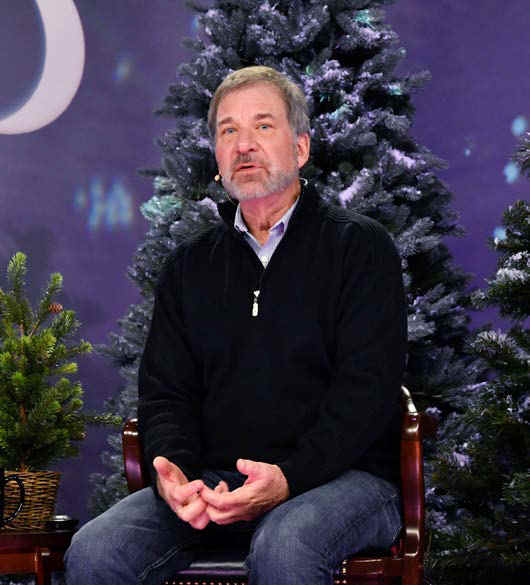 ADAMUS: Energy. And we've talked about it the last few months, we've
been talking about it in Keahak for a while, but there's been kind of
an adversarial relationship with energy. It's been something that you
think about, you think you want, but then you're afraid of it because,
well, it just might make things worse in your life. The ego didn't know
if it was going to misuse all that energy and power and everything else.
ADAMUS: Energy. And we've talked about it the last few months, we've
been talking about it in Keahak for a while, but there's been kind of
an adversarial relationship with energy. It's been something that you
think about, you think you want, but then you're afraid of it because,
well, it just might make things worse in your life. The ego didn't know
if it was going to misuse all that energy and power and everything else.
This year I'm going to insist, if you're going to stay in Crimson
Circle – thinning out the ranks, I'm the chief marketing officer, “Get
out of here! Go somewhere else!” (Adamus chuckles) If you're going to
stay in Crimson Circle, a part of Shaumbra this year, you have to allow
energy to be your friend. That's it. Period. No more adversarial energy
with relationship. No more energy fights and battles. You have to allow
energy to be your friend, otherwise, bye-bye.
There's just no place where we're going for the old working, suffering,
being a slave to energy. There is absolutely no place. For the rest of
us, of you who allow energy to be your friend, it'll be fun. It'll be
easy. You're not going to be worrying about abundance and all those
things anymore. A whole new world opens up.
So, you've got three things. You've got a new ego and the Master, we're
going to call it the Wego. That's really going to mess Freud up. He's
not going to know what to do with that. Oh, he's going to try to tear
it apart. And you've got energy.
Let's take a big deep breath with that for this year.
So now – I have to take a drink here – now we get to the fun part. We
get to the merabh. That's when I kind of stop talking and you get to
fall asleep. But before we go into the merabh, let me explain a little
something of what's been happening here.
Today's Guest
Remember, our dear friend John Kuderka? He hasn't been gone that long.
John's been busy in the laboratory working – not lavatory, laboratory
(a few chuckles) – working away. He had such a passion for Shaumbra.
You know, he sat back there at the desk, did you feel it was a little
crowded and chaotic there today? (the staff nods “Yes”) Uh huh. You
notice the minute we start working with technology, John's got a big
smile on his face. He says, “I'm going to mess with them today,” and he
has been. All this little commotion over here and the running back and
forth and everything is just John having a good time. He was very
engineering-oriented, very mental.
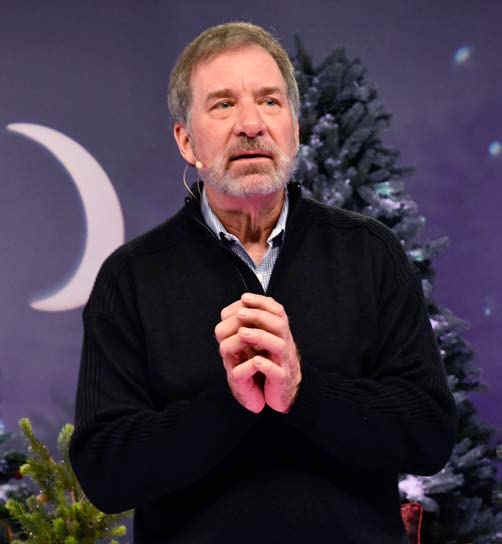 John was not what I would consider to be a great communicator (Leslie
laughs and Adamus chuckles) by any stretch of the imagination, but what
he did have was this absolute love for Shaumbra and the work. He's been
with it for a long time, many lifetimes. This wasn't his first here.
John was not what I would consider to be a great communicator (Leslie
laughs and Adamus chuckles) by any stretch of the imagination, but what
he did have was this absolute love for Shaumbra and the work. He's been
with it for a long time, many lifetimes. This wasn't his first here.
When he left, he made a commitment. He said, “I'm going to work on
this” – he called it a technology – “a communication technology, a
link” when he got to the other side, because he realized one of the
hardest things for Shaumbra and for him is how do you communicate with,
how do you connect the human, the ego, with the Master, much less the I
Am, the divinity? How do you do this? Because when one is caught in
their mind and one is really kind of confined by their own ego or their
lack of trust in their ego, how are they going to break through and
make this connection, human and Master?
Well, he's been off in the other realms working on it. He's been coming
to the Shouds and he's here today with us, as you can tell from the –
ahem – technology snafu. You know, his point to all of you is, see,
without him the technology is just that much harder. Yeah. Yeah. A
little ego there, John. He's smiling and laughing, because he's been
working on this, this link, this technology, actually been working a
little bit with Tesla, but doing a lot of it on his own because of his
real deep understanding of Shaumbra.
So, he wanted to come in today to introduce this, and we're going to do
this now with the merabh, with the Wego and with the new friends.
So, I'm not quite sure what he has in mind and this can be a little
confusing for Cauldre, because I'm going to be here, but John might be
popping in and out. But let's just see what happens, as we bring this
in.
Let's take a deep breath and welcome back John Kuderka.
Uh, he was expecting some applause there (audience applause and cheering).
Great. Let's put some music on and let's get this show on the road.
Merabh of Connection
Good deep breath.
(music begins)
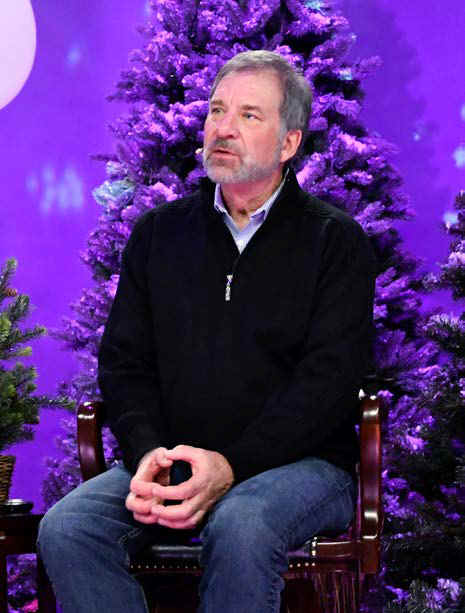 Today, we talked about the ego. That's been really made to be quite a
villain, like a bad thing. It's not. It's your stories. It's your
experiences. Up until now, most of them were through the eyes of
others, through your perception of what others thought of you. That's
how the ego was created and developed, whether it was from your parents
or friends or spouse or whatever. And that ego, very, very fragile,
extremely fragile, because it really wasn't yours.
Today, we talked about the ego. That's been really made to be quite a
villain, like a bad thing. It's not. It's your stories. It's your
experiences. Up until now, most of them were through the eyes of
others, through your perception of what others thought of you. That's
how the ego was created and developed, whether it was from your parents
or friends or spouse or whatever. And that ego, very, very fragile,
extremely fragile, because it really wasn't yours.
Now let's come back to what is yours – you – your sense of awareness, your
perception of yourself without anyone else's input.
This was – now I'm speaking for John – this was one of the biggest
challenges that he had in this last year or so working on this, what he
calls, a program. He was software engineer type of guy, so everything
to him is programs, and this was one of the biggest challenges. How do
you go beyond the ego, the sense of identity that's really not yours?
It was built by others. How do you get to You?
And You – again, something that confounded John – he realized, he
discovered that you are not even your thoughts. That's not you. You
identify with them. You put them in the same basket as you do your ego.
But how do you go beyond your thoughts to get back in touch with You?
Then he realized most people actually don't know the real You. Most
people still identify with their thoughts, their ego, the old ego that
was attached to how others perceived you.
And then John looked at this whole thing of connecting with the Master,
with the wisdom. How do you do that without the old thoughts and
limitations? How do you bring these things in, these things we're
talking about, your new friends for this year? And how do you connect
with energy? That's the one that fascinated him the most, how do you
connect with energy?
You know, I, Adamus, I say that energy is the song of the soul. Energy
is communications, but how do you connect to it? If not from your ego
and your thoughts, how do you connect from who you really are, your
perception, your awareness of yourself?
So, John's been tinkering around in the lab.
I drop by to visit him once in a while and strike up a friendly
conversation, “Hey, John Kuderka, how's it going in there? You've had
the door locked, closed. You've been down there for a long, long time.
How's it going in there?”
And John would turn around, look at me and go, “Urhh, I'm working on
it” (a few chuckles). Good communicator. But I knew, I knew he was
being so diligent in what he was doing.
I came by to visit him about six weeks ago, knocked on the door, heard
his voice, “Nobody's here.” Knocked again and said, “John, this is
Adamus. You can't fool me.”
He said, “I'm busy. I'm almost there. Come back tomorrow.”
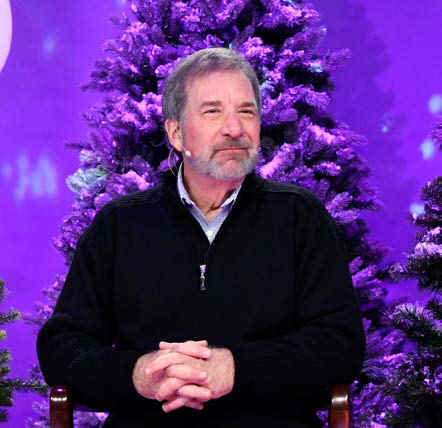 So I came back the next day and John had a big smile on his face – I
mean, not that he really has a face, but kind of – had a big smile and
said, “I think I got it.” He said, “I developed a patch” – he was a
programmer, engineer type, so that's how he thinks – “Developed a
patch, something that connects the real human to the Master, the real
human to energy.”
So I came back the next day and John had a big smile on his face – I
mean, not that he really has a face, but kind of – had a big smile and
said, “I think I got it.” He said, “I developed a patch” – he was a
programmer, engineer type, so that's how he thinks – “Developed a
patch, something that connects the real human to the Master, the real
human to energy.”
I said, “How's it work, John?” He started to tell me and I said, “Ehh,
no. I don't need all that engineering talk. Does it work, John? Does it
work?”
And he said, “Yes, it does.”
I said, “How can you tell? How do you know?”
And he said, “You know, I went back to myself as a human on the planet
in this lifetime not so very long ago. I went back to myself, let's
call it, a year or two before I left, and I tried it on myself, kind of
like going back in time.” He said, “It changed my life. Something
shifted. It was right about the time I pretty much knew I wasn't going
to be on the planet much longer, so I didn't mind trying it on myself
in case it didn't work. At least it only killed me.” He said, “But I
tried it on myself and it changed. I stated communicating differently
with me, with my beloved, Leslie …” (Adamus chokes up) “… with others.”
He said, “I started being aware of things in other realms, and yeah, at
first my old ego said I was just crazy, but then I realized I wasn't.”
So, I said, “So John, let's wait till after the first of the year, have
you come in. Have you come in, because I'm going to be talking about
new friends. I'm going to be talking about the friend of energy and the
new ego called the Wego. Let's do it.” So that's what we're here for.
Let's take a good deep breath and just allow.
What is it? John calls it a patch or a link. He was always patching
Crimson Circle software.
He was really good at that, going into something that was kind of
broken and he'd patch it up and he'd get one part talking to the other.
Bonnie would call him, maybe Jean would call him and say, “Oh, this
software doesn't work,” and he'd patch it. He'd get it talking.
What he's done now is developed, you could say, kind of a consciousness
patch, a link, and he invites you, I invite you just to take a deep
breath and allow this thing – he doesn't want to spend a lot of time
describing, but allow this thing – that opens you up to that
connection, to the Master, so it's not elusive, it's not somewhere
else. It's not that you're going to hear words, but it'll be such a
knowingness that the Master and you are together.
Take a deep breath and allow that.
John says actually “Own it.” It's not his. He calls it freeware. Open
source. Anyone who's ready can simply breathe it in. It's – how would
you say, John? – is it an energy link? No.
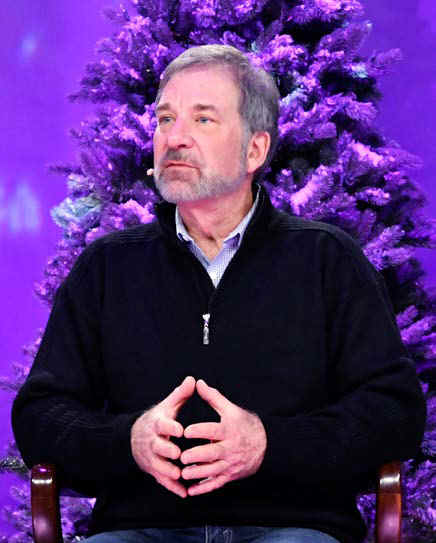 John's saying, “Just try it. It works. Stop trying to figure it out. It
just works.”
John's saying, “Just try it. It works. Stop trying to figure it out. It
just works.”
What is it? It's that link that connects the human and the Master. It's
a conduit, a pathway, a connection. Two points of light now that
connect gracefully and easily, the human and the Master, without the
struggle, without mental. He's figured out kind of a circuitry that
allows one to go beyond thought.
(pause)
And the next, that link from the human Master, from your Wego, to energy.
Energy is a song. It's a communication, but it was kind of falling on
deaf ears. It was kind of like not integrating into your life. It was a
real great concept, but how do you really bring it in?
How do you really connect?
How do you become friends with something that's really already you?
How do you bypass the thoughts of the old ego, the criticisms and the
judgments and everything else of the old ego, to now commune with
energy, let it be your friend.
So, John invites you to breathe into this, this beautiful – he calls it,
an elegant circuitry. Hm. Such an engineer.
(pause)
Like a pathway, a connection between you and energy, your energy.
(pause)
And John is very careful to point out that he doesn't own this. It's
not his. He's just helping you to become aware of it. He figured out
kind of, I guess you could call it, the pathway, the circuitry, the
software program, energetically speaking, that was already there within
you, but was so buried.
It's not like you're getting some implant or anything else. You're just
becoming aware of a very natural and very beautiful connection – the
Master to the human.
No need to speak a lot of words with each other. That's the elegance of
this circuitry. No need to speak a lot of words.
 You know how it is with a really good friend where you don't need to talk
all the time? It's just there.
You know how it is with a really good friend where you don't need to talk
all the time? It's just there.
Take a deep breath and all you have to do is allow it.
(pause)
That link between Master and human.
You know, you spent the last couple of years trying to figure it out –
“What do I do? How do I get there? What do I need to do to connect with
the Master?” – and John kind of opened, you could say, the awareness,
the pathway, setting the example so you could open it up within
yourself.
And now that same thing, just that connection point between the human,
Master and energy.
John says in his work that he had to keep coming back to absolute
simplicity – he's using the term, almost a “zero point simplicity” –
because every time he started getting complex, every time he started
trying to – what is he saying – trying to apply logic to it, it would
fall apart. But he came to a near zero point simplicity, then he became
wildly aware of a natural connection, a natural link that's already
there between this wise human and energy.
Take a deep breath. Feel into the elegant design of this connection.
A good deep breath.
(pause)
So now we bring into this year the new friends of the Master, of energy
and of the ego or Wego. We bring that into this year and we now open
the link, the connection, so what we have is all of this, interacting,
flowing and moving together.
If you ever feel that you've lost the connection with the Master or
it's fading away, if you ever feel that you're losing that friendship
with energy, just come back to this.
I was going to say, let's call it the Kuderka Link, but he didn't like
that. He said it's yours. It's all yours.
He also notes that he is not the first to come across this, I guess he
calls it a patch. He's not the first to come across it. The others who
have simply didn't share it. They didn't stay on the planet, they
weren't able to channel it through another human. He's not the first to
come across this, but he's the first to have the joy of sharing it.
Let's take a deep breath.
This patch, this link between human, Master and energy.
 Let's take a deep breath, as we begin a new year, your best year ever.
Oh, the world will be a mess, but (a few chuckles) this will be your
best year ever.
Let's take a deep breath, as we begin a new year, your best year ever.
Oh, the world will be a mess, but (a few chuckles) this will be your
best year ever.
(music fades out)
With that, deep thanks and acknowledgment to John Kuderka, who says he
will be back and next time he won't mess with the technology. But he
had to prove a point that he was really here. So special
acknowledgements to John and to all of you.
Just remember that all is well in all of creation.
Thank you and Happy New Year. Happy New Year (audience applause).
* * * * * * * * * * * * * * * * * * * * * * * * * * * * * *
Please freely distribute this text, in its entirity,
on a non-commercial, no-charge basis, including these notes.
All other uses must be approved in writing by Geoffrey Hoppe,
Golden, Colorado.
See contacts page on website: www.crimsoncircle.com
© Copyright 2019 Geoffrey Hoppe, Golden, Colorado USA 80403